Watch CBS News

Superyacht seized by U.S. from Russian billionaire arrives in San Diego Bay
June 27, 2022 / 3:40 PM EDT / CBS/AP
A $325 million superyacht seized by the United States from a sanctioned Russian oligarch arrived in San Diego Bay on Monday.
The 348-foot-long (106-meter-long) Amadea flew an American flag as it sailed past the retired aircraft carrier USS Midway and under the Coronado Bridge.
"After a transpacific journey of over 5,000 miles (8,047 kilometers), the Amadea has safely docked in a port within the United States, and will remain in the custody of the U.S. government, pending its anticipated forfeiture and sale," the Department of Justice said in a statement.
The FBI linked the Amadea to the Russian oligarch Suleiman Kerimov, and the vessel became a target of Task Force KleptoCapture, launched in March to seize the assets of Russian oligarchs to put pressure on Russia to end the war in Ukraine. The U.S. said Kerimov secretly bought the vessel last year through various shell companies.
But Justice Department officials had been stymied by a legal effort to contest the American seizure warrant and by a yacht crew that refused to sail for the U.S. American officials won a legal battle in Fiji to take the Cayman Islands-flagged superyacht earlier this month.
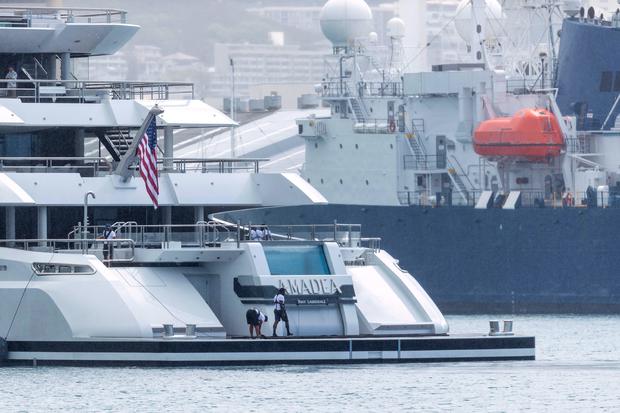
The Amadea made a stop in Honolulu Harbor en route to the U.S. mainland. The Amadea boasts luxury features such as a helipad, mosaic-tiled pool, lobster tank and a pizza oven, nestled in a décor of "delicate marble and stones" and "precious woods and delicate silk fabrics," according to court documents.
"The successful seizure and transport of Amadea would not have been possible without extraordinary cooperation from our foreign partners in the global effort to enforce U.S. sanctions imposed in response to Russia's unprovoked and unjustified war in Ukraine," the Justice Department said.
More from CBS News

Men used AR-style rifles to kill protected burros, feds say
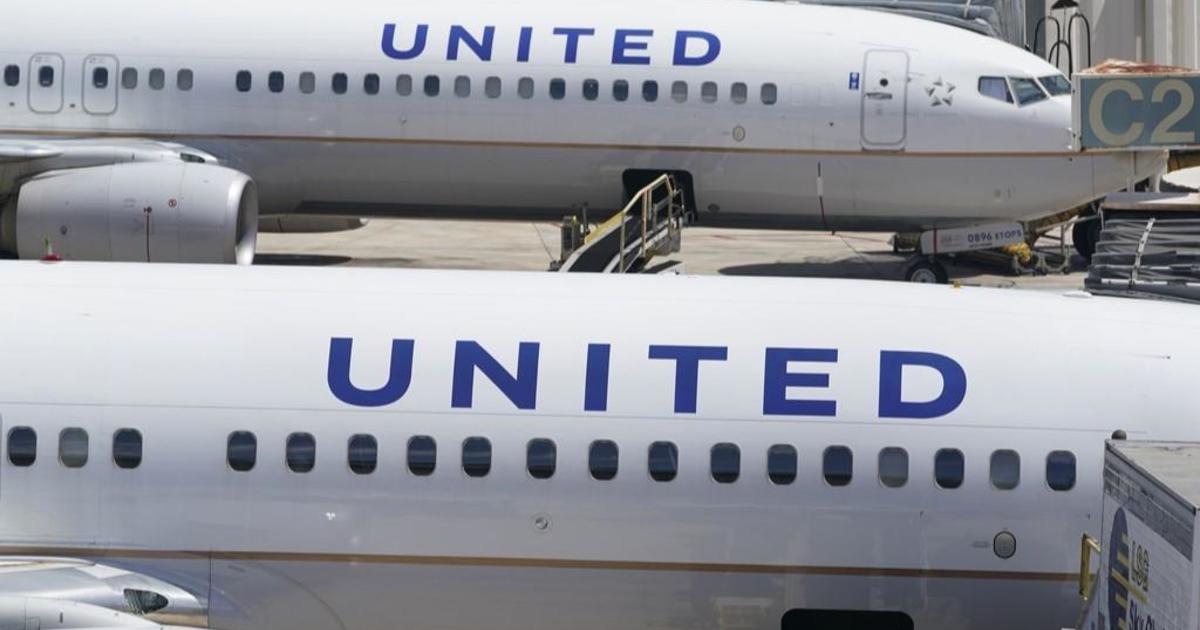
United Airlines CEO vows to keep passengers safe after multiple mishaps
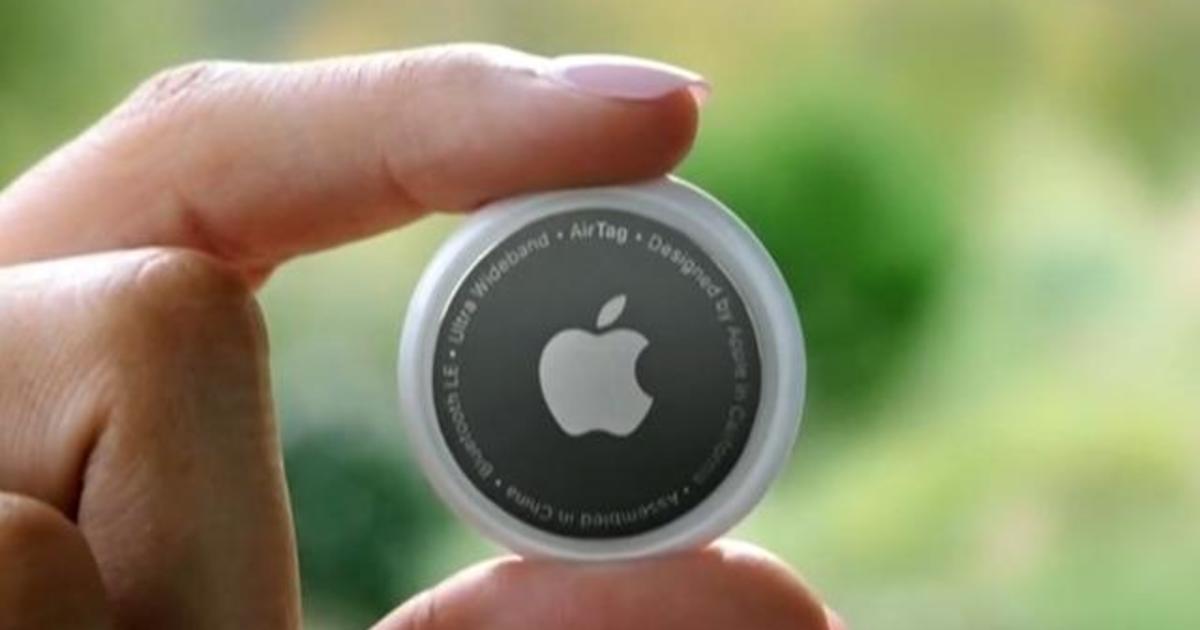
Judge rejects Apple's request to toss out lawsuit over AirTag stalking

Sports Illustrated to live on, now with new publisher in tow
- Skip to main content
- Keyboard shortcuts for audio player
A multimillion-dollar superyacht once owned by a Russian oligarch has gone to auction
Dustin Jones

The Axioma superyacht, seen in Gibraltar in March, once belonged to Russian oligarch Dmitrievich Pumpyansky. The vessel was seized last March in accordance with sanctions imposed by Britain and the European Union. It will be auctioned off Tuesday, with the proceeds going to JP Morgan Chase. JON NAZCA/REUTERS hide caption
The Axioma superyacht, seen in Gibraltar in March, once belonged to Russian oligarch Dmitrievich Pumpyansky. The vessel was seized last March in accordance with sanctions imposed by Britain and the European Union. It will be auctioned off Tuesday, with the proceeds going to JP Morgan Chase.
A superyacht once belonging to a Russian billionaire went to auction Tuesday in the British territory of Gibraltar. The vessel, estimated to have a value in the tens of millions of dollars, was seized in March as part of Western sanctions against Russia following the invasion of Ukraine.
Gibraltar's Admiralty Marshal was tasked with appraising and selling the yacht, which received 63 bids, according to court documents. Its official appraised value is "a confidential matter which cannot be disclosed," although outside estimates reportedly place it anywhere from $42 million to $75 million. Details about who ultimately purchases the vessel and for what price will be made public when the transaction is complete.
Measuring 236 feet long and weighing over 1,600 tons, the Axioma is a sight to behold. It can accommodate 12 guests in six cabins — along with a 20-person crew in 12 other rooms — and features a gymnasium, full-service spa, infinity pool and luxury cinema, as stated on the Howe Robinson Partners auction site.
The cost to charter the Axioma for a week runs an average of roughly $500,000 , not including other operating costs, according to Yacht Charter Fleet.
The former owner of the ship is Dmitrievich Pumpyansky, once Russia's largest steel pipe manufacturer and currently worth $2 billion, according to Forbes . Unfortunately for Pumpyansky, he was sanctioned by Britain and the European Union after the invasion.
Other superyachts owned by Russian oligarchs have been detained as a result of the sanctions, but the Axioma is the first to be sold off, the Guardian reported.
Despite calls for the proceeds of the sale to benefit Ukraine, the funds will instead be paid to JP Morgan Chase. According to the Guardian, the international bank had a loan agreement with Pumpyansky's holding company, Pyrene Investments.
However, the sanctions against Russia prevented JP Morgan Chase from accepting payments from the holding company, breaching the agreement, and the bank filed a legal claim to have the vessel seized and sold at auction.
Other superyachts belonging to Russian elites have been detained all over the world — including the Amadea, which was seized in Fiji at the request of the United States in May. That $300 million yacht belonged to Suleiman Kerimov, a Russian gold producer worth over $12 billion, according to Forbes .
The fate of the Amadea is uncertain, however; it, too, could be sold to the highest bidder, which would be in line with President Biden's aims to hold Russian oligarchs accountable for their role in the invasion and, potentially, use the proceeds to aid Ukraine.
- International edition
- Australia edition
- Europe edition
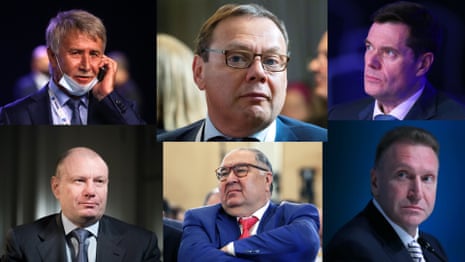
Meet the oligarchs: the Russian billionaires whose jets, yachts and mansions are now in the crosshairs
Some of Russia’s super rich are finding their assets in the west under threat of sanctions from the US
For a growing number of Russia’s richest and most powerful men, now would be a very bad time to take their private jets and superyachts to their mansions in the United States.
Yesterday, the White House announced it would expand the list of Russian oligarchs subject to full blocking sanctions – the highest level of restrictions – as it ramps up punishment against Russia for its invasion of Ukraine. Some of the newly named oligarchs overlapped with a list of Russian elites on whom the European Union imposed sanctions earlier this week, although there were some notable differences.
The federal government won’t just stop at freezing these targets’ assets, but will seize them, Joe Biden announced in his State of the Union address on Tuesday.
In charge of appropriating these assets will be KleptoCapture , a newly announced justice department taskforce, with support from the treasury department, FBI, IRS and other federal agencies. Under US law, the justice department may use civil forfeiture to confiscate the proceeds from foreign crimes, including corruption, when they are found in the United States.

Their efforts will complement those of a transatlantic taskforce announced over the weekend between the United States, France, Germany, Italy, the United Kingdom, Canada and the European Commission.
“We are joining with our European allies to find and seize your yachts, your luxury apartments, your private jets. We are coming for your ill-begotten gains,” Biden said.
The Feds may have their work cut out. US regulations are lax when it comes to requiring disclosures of real estate transactions by foreign individuals, making the country a prime destination for Russian’s uber-rich looking to snap up prime properties without scrutiny.
Other favorite toys of oligarchs like planes and boats are commonly registered through shell companies. And many of those luxury craft have begun traveling toward extradition-free territories such as the Maldives, according to Bloomberg News .
Here’s an introduction to the Russian oligarchs now joining the US sanctions list – as well as a few others who haven’t been targeted yet, but have notable US ties.
Alisher Usmanov
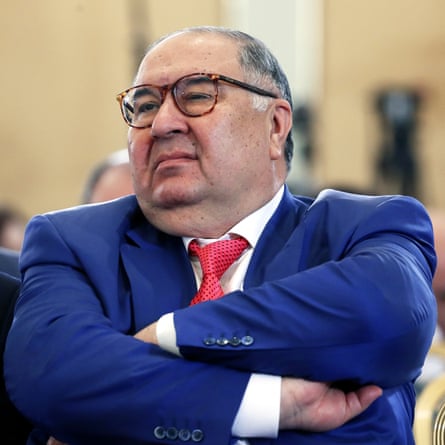
Russians know Alisher Usmanov as one of Vladimir Putin’s “favorite” oligarchs. The country’s richest man until 2015, Usmanov owns a majority stake in Russia’s second-largest phone network, MegFon, and a large stake in the iron and steel giant Metalloinvest.
But few Americans know that Usmanov also helped give us Facebook. The billionaire began investing in the social network in 2009, when Zuckerberg’s firm was having trouble accessing funding in the wake of the financial crisis. Usmanov ultimately poured over $900m into the firm, owning as much as 10% of the company before selling his stake in 2014 and netting himself billions. He was also a major investor in Apple, Twitter, LinkedIn, Groupon and Zynga.
Usmanov was subjected to sanctions by the EU on Monday, and on Wednesday German authorities seized his $600m megayacht , the Dilbar – which boasts the world’s largest yacht-based indoor swimming pool. On 3 March he was among those added to the sanctions list by the US. The oligarch still has a $200m private Airbus A340.
The Rotenbergs
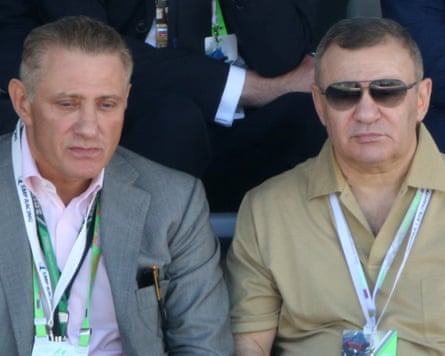
Long before brothers Arkady and Boris Rotenberg became two of Russia’s wealthiest tycoons, they were teenage Vladimir Putin’s judo training buddies, a role they continued into adulthood. Clearly they were good at it, because after Putin became president he rewarded the brothers with the control of large state-owned enterprises and lucrative contracts, netting them a massive fortune.
The Rotenbergs have since built a huge family empire of international investments under a web of shell companies, which has made Arkady’s son Igor a billionaire in his own right. Despite Arkady and Boris getting US sanctions after Russia’s 2014 invasion of Crimea, the brothers “continued actively participating in the US art market by purchasing over $18 million in art in the months following the imposition of sanctions”, according to a US Senate report . Rotenberg-linked shell companies continued making transactions in the US financial system worth over $91m long after the sanctions, according to the report.
In addition to Arkady and Boris, Igor and five additional family members were added to the US sanctions list this week.
Igor Shuvalov
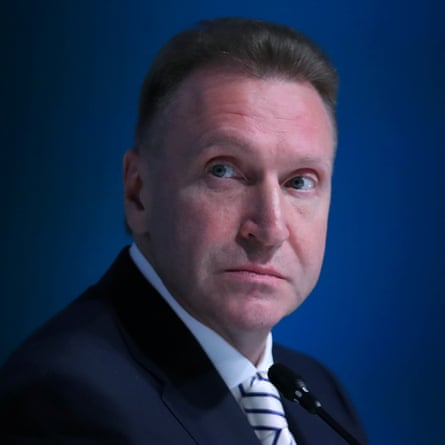
Russia’s deputy prime minister from 2008 to 2018, Igor Shuvalov is now the chairman of VEB, the Russian development bank that finances major infrastructure projects, including the Sochi Olympics. He has claimed to be one of Russia’s cleanest officials, telling media he transferred all his wealth to Russia in 2013, and only kept it offshore before that to avoid spoiling his kids . But an investigation by the anti-corruption activist Alexei Navalny found that Shuvalov, through a shell company, bought two London luxury apartments in 2014 for $11.4m and has used a secret private jet to fly his wife’s corgis around the world because, as one of his staffers explained, “it’s not that comfortable in business class”.
He won’t be able to fly his corgis as many places now that he’s on the US and EU’s sanctions lists.
Yevgeniy Prigozhin
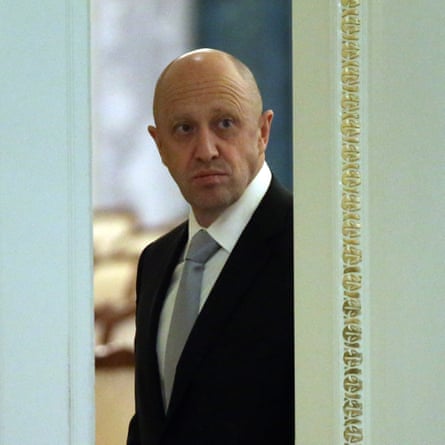
Legend has it Yevgeniy Prigozhin began his rise to power selling hot dogs , shortly after getting released from prison for robbery. The wiener venture was apparently a smash hit, and within years he had opened high-end restaurants that counted Russia’s leader among their clientele, earning him the nickname of “Putin’s chef” and catapulting him into the inner circles of Russia’s elite.
Americans might be more familiar with another one of Prigozhin’s businesses: the Internet Research Agency, which employed a troll army that began by supporting Russia’s 2014 invasion of Crimea, before turning its efforts to influencing the 2016 US presidential election in favor of Donald Trump. Prigozhin and the Internet Research Agency were indicted by a US grand jury in 2018 for interfering with the election, and he was added to an FBI wanted list in 2021.
He’s now on both the US and EU sanctions lists for running disinformation campaigns to support Russia’s invasion of Ukraine.
Sergey Chemezov
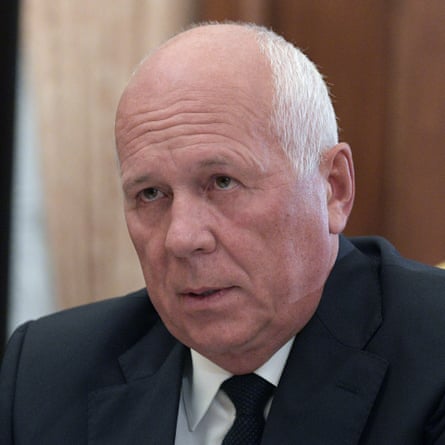
A former KGB officer who befriended Vladimir Putin in the 1980s while living in the same apartment building, Sergey Chemezov rose through Russia’s public and private sector in Putin’s wake, and in 2007 was appointed as CEO of Russia’s state-owned defense giant Rostec, a position he still holds today. Chemezov was sanctioned by the US in 2014 amid Rostec’s role as a supplier for Russia’s invasion of Crimea, and Washington is targeting him again, now with his family members.
According to investigative reports and allegations from the jailed activist Alexei Navalny, Chemezov’s relatives have used shell companies to accumulate eye-watering assets , including superyachts and luxury villas around the world. But Chemezov says he’s clean, telling Russian media in 2019: “I do not accumulate wealth. I don’t stuff money in the corners. I don’t have yachts or airplanes.”
Nikolai Tokarev
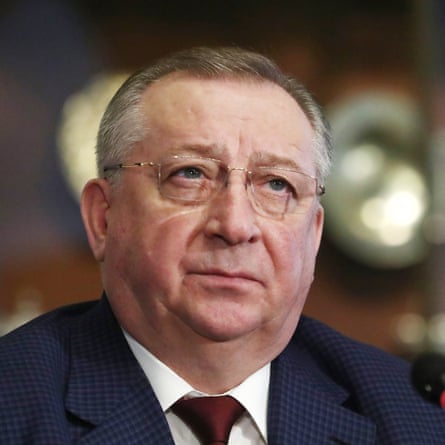
Another former KGB officer who served alongside Putin and Chemezov, Nikolai Tokarev took over former Soviet state assets as Putin built his political power, and in 2007 became the head of the state-controlled oil giant Transneft. The oligarch has used his position at Transneft to build a business and real estate empire, which reportedly includes sponsoring an extremely fancy palace that’s said to be personally used by Putin. Tokarev was hit by US and EU sanctions this week.
Vladimir Potanin
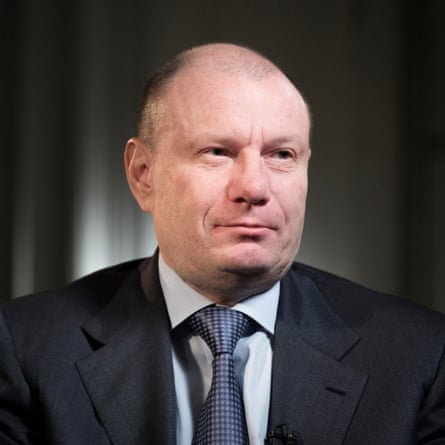
Reportedly the second richest man in Russia, the banker, metals mining tycoon and former deputy prime minister Vladimir Potanin was among a small circle of oligarchs who met with Putin last week as the invasion of Ukraine began.
Potanin has played a big role in American arts: he has been a board member of New York’s Guggenheim Museum for two decades, until he stepped down on Wednesday. He has also given millions to the Kennedy Center in Washington, which carved his name into a wall. He is also known to have owned property in New York City , which came to light during a divorce fight that could cost him $7bn.
Potanin isn’t currently under US sanctions, which is good news for his three megayachts and two private jets (that we know about).
Leonid Mikhelson
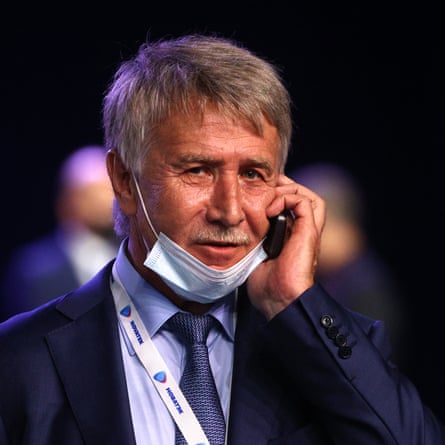
Russia’s richest man in 2016, Leonid Mikhelson is the founder and chairman of natural gas producer Novatek, a close friend of Putin’s, and a business partner of Gennady Timchenko, a billionaire who has been under US sanctions since 2014.
Mikhelson loves art: along with his $200m art collection, he was on the board of trustees at New York’s New Museum from 2013 to 2017, and has sponsored exhibitions at the Art Institute of Chicago and London’s Tate Modern. His ostentatious superyacht, the Pacific, can reportedly accommodate two helicopters.
But his other assets may be harder to trace. In 2017, the Panama Papers revealed that Mikhelson had used an intricate system of shell companies to secretly register a $65m Gulfstream private jet in the United States, which in most cases requires US citizenship or permanent residency.
The tycoon is not currently subject to sanctions, though his company Novatek is.
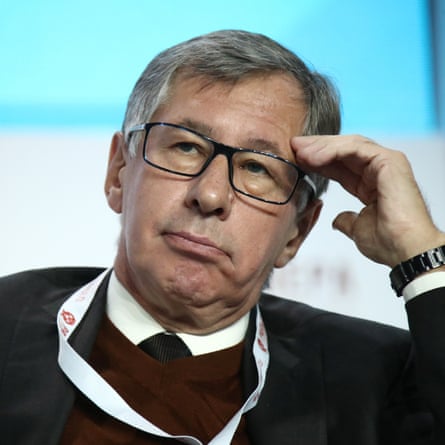
Petr Aven is the head of Alfa Group, a commercial bank subject to US sanctions that helped him amass an estimated $5.5bn fortune. A well-known collector of classical Russian paintings, Aven has lent works from his collection – reportedly worth $200m – to New York’s Museum of Modern Art and the Neue Galerie. Aven reportedly has never bought a plane or yacht, and told the FT “all my money goes in to art.” That is, of course, if you don’t count the millions he spent transforming an 8.5-acre plot in England into a “KGB-proof” mansion , complete with a bomb-proof panic room.
Last year, Aven filed a libel lawsuit against HarperCollins for a book it published about Vladimir Putin’s rise, Putin’s People.
Aven was sanctioned on Monday by the EU, which described him as “one of Vladimir Putin’s closest oligarchs” and one of “approximately 50 wealthy Russian businessmen who regularly meet with Vladimir Putin in the Kremlin”. He has not yet been placed under sanctions by the US or UK.
Mikhail Fridman
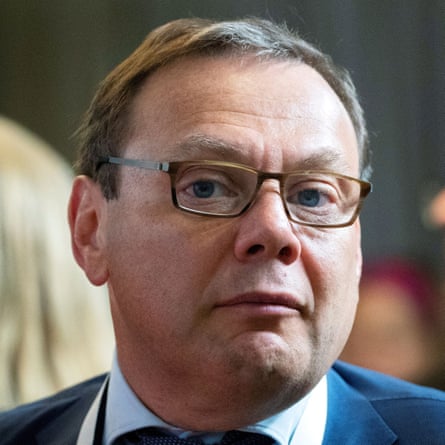
Petr Aven’s business partner, Mikhail Fridman, is Alfa Group’s founder and a Ukrainian-born Russian oligarch. Fridman has made substantial investments in the United States, which include spending a reported $1bn in 2011 to buy up distressed properties across the east coast, telling the Wall Street Journal at the time, “The American market is the most well-regulated and liquid market in the world. It has the best protection for investor rights.”
Through Fridman’s investment group, LetterOne, the billionaire also sank $200m into Uber , and $50m into the telecom startup FreedomPop. Fridman also caused a stir in 2018 when he spoke alongside Aven at a closed-door dinner hosted by the Atlantic Council, a major US foreign policy thinktank, in what critics saw as an unofficial Kremlin mission to protest against US sanctions.
Last week, Fridman became one of the first oligarchs to speak out against the invasion of Ukraine, calling it a “tragedy” and writing that “war can never be the answer.” Nonetheless, Fridman was subjected to sanctions on Monday by the EU, which named him as “a top Russian financier and enabler of Putin’s inner circle”. Like Aven, he has not yet been placed under sanctions by the US or UK.
The oligarch has a son, Alexander, who is reportedly attending NYU’s Stern business school, after a stint in Moscow selling hookah .
Alexei Mordashov
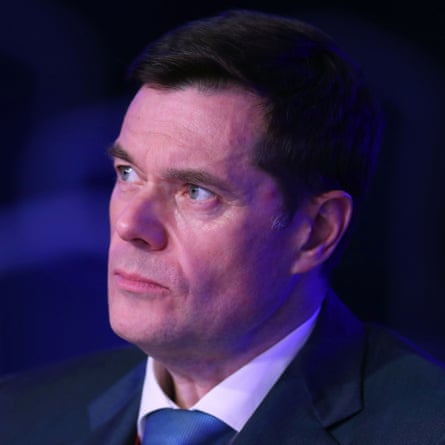
Currently Russia’s richest man, Alexei Mordashov owns a third of Tui, Europe’s biggest tourism firm, and gained his billions as the chief executive of Russia’s largest steel and mining firm, Severstal. He is also a large shareholder of the Bank of Rossiya, which has opened up branches across Russia-occupied Ukrainian territory in recent years.
Over the last two decades, the billionaire has also poured money into the United States, investing heavily through Severstal in steel companies in the midwest before selling them for $2.3bn in 2014.
Mordashov has been hit with sanctions by the EU, but the US hasn’t taken action yet. They would be interested in his Bombardier Global 6000 private jet and multiple superyachts, including the $500m Nord, which Senator Bernie Sanders noted on Tuesday had been “sailing in the Seychelles region for more than 10 days” in a Twitter thread about Russian offshore wealth.
Roman Abramovich
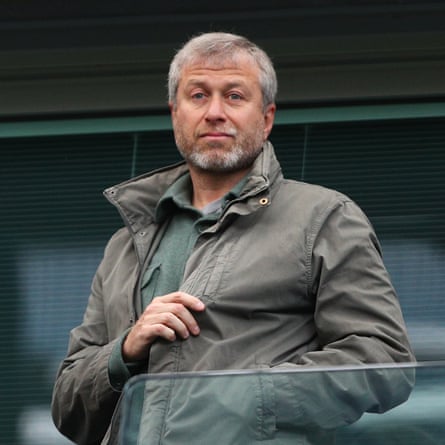
Roman Abramovich, the longtime owner of Chelsea FC, has been described by a member of the UK parliament as a “ key enabler ” of Putin’s regime, which Abramovich has long denied. An orphan raised by his grandparents in Siberia, Abramovich pulled himself up by his bootstraps the old-fashioned way: wriggling into the inner circles of government and then profiting hugely by selling previously state-owned assets that he acquired after the fall of the Soviet Union.
The billionaire owns one of the world’s most outlandish yachts, complete with an onboard submarine and three helicopters. He has also owned a number of ultra-expensive properties in the United States, including a trio of buildings in New York City’s Upper East Side worth more than $90m combined, which he transferred to his third wife, Darya Zhukova, in 2018.
Abramovich is not currently under western sanctions. Earlier, the British prime minister, Boris Johnson, told the House of Commons that Abramovich was “already facing sanctions” though later said he “misspoke”.
This article was amended on 7 March 2022 to clarify that Leonid Mikhelson was on the New Museum’s board from from 2013 to 2017
Most viewed
US says it wants forfeiture of billionaire Russian oligarch's $300 mln superyacht
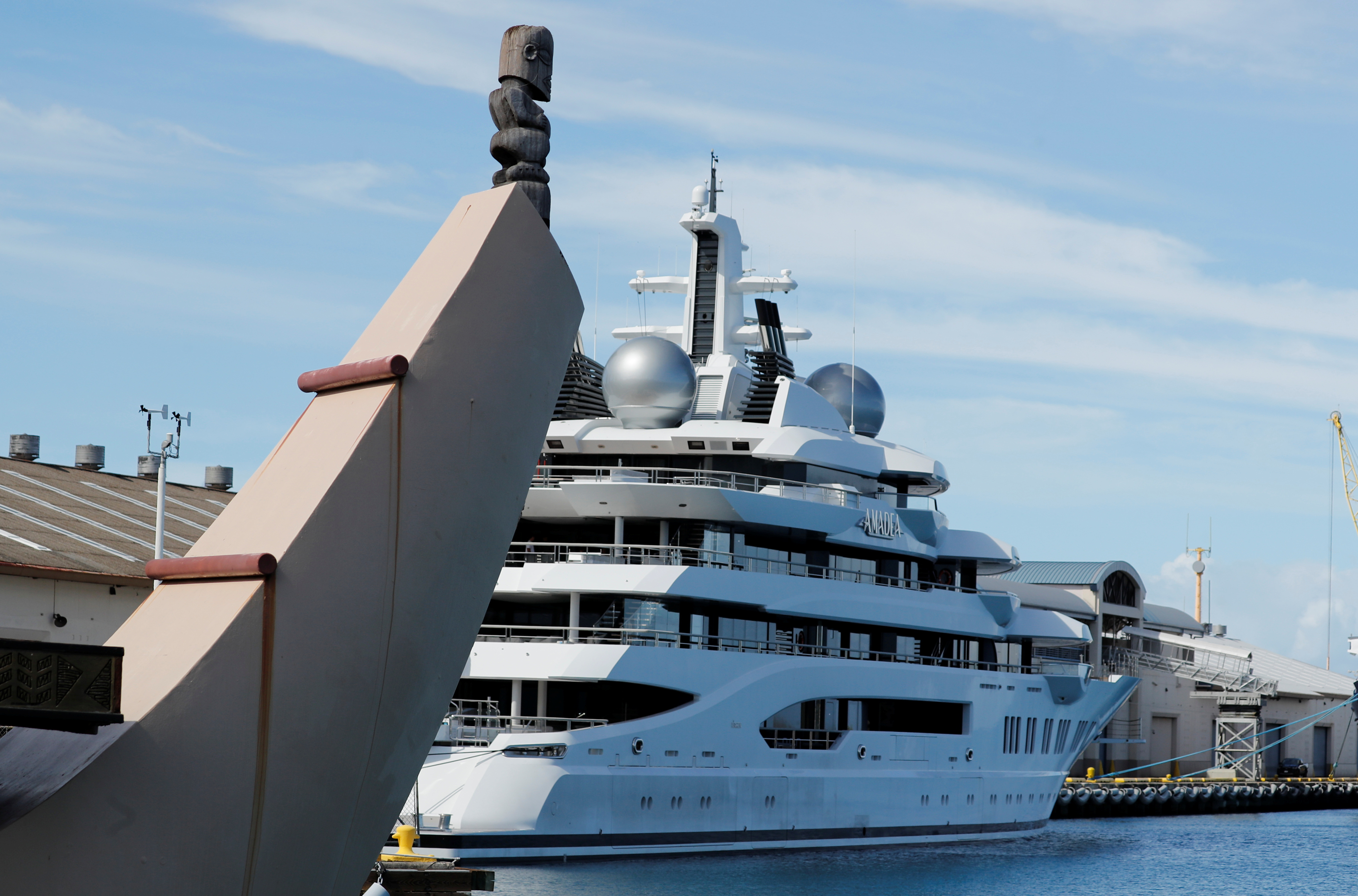
- Polyus PAO Follow
Jumpstart your morning with the latest legal news delivered straight to your inbox from The Daily Docket newsletter. Sign up here.
Reporting by Luc Cohen in New York; editing by Jonathan Oatis
Our Standards: The Thomson Reuters Trust Principles. , opens new tab

Thomson Reuters
Reports on the New York federal courts. Previously worked as a correspondent in Venezuela and Argentina.
Read Next / Editor's Picks
H&R Block sued the U.S. Federal Trade Commission on Wednesday, seeking an order that could upend the agency’s case accusing the tax giant of misleading consumers about the scope of its free tax-filing services.

Industry Insight

Mike Scarcella, David Thomas

Karen Sloan

Henry Engler

Diana Novak Jones
U.S. seizes mega yacht owned by oligarch with close ties to Putin
PALMA DE MALLORCA, Spain — The U.S. government seized a mega yacht in Spain owned by an oligarch with close ties to the Russian president on Monday, the first in the government’s sanctions enforcement initiative to “seize and freeze” giant boats and other pricey assets of Russian elites .
Spain’s Civil Guard and U.S. federal agents descended on the yacht at the Marina Real in the port of Palma de Mallorca, the capital of Spain’s Balearic Islands in the Mediterranean Sea. Associated Press reporters at the scene saw police going in and out of the boat on Monday morning.
The seizure was confirmed by two people familiar with the matter. The people could not discuss the matter publicly and spoke to AP on condition of anonymity. A Spanish Civil Guard spokesman confirmed that officers from the Spanish police body and from the FBI were at the marina searching the vessel Monday morning and said further details would be released later.
A Civil Guard source told The Associated Press that the immobilized yacht is Tango, a 78-meter (254-feet) vessel that carries Cook Islands flag and that Superyachtfan.com , a specialized website that tracks the world’s largest and most exclusive recreational boats, values at $120 million. The source was also not authorized to be named in media reports and spoke to AP on condition of anonymity.
The yacht is among the assets linked to Viktor Vekselberg, a billionaire and close ally of Russian President Vladimir Putin who heads the Moscow-based Renova Group, a conglomerate encompassing metals, mining, tech and other assets, according to U.S. Treasury Department documents. All of Vekselberg’s assets in the U.S. are frozen and U.S. companies are forbidden from doing business with him and his entities.
The move is the first time the U.S. government has seized an oligarch’s yacht since Attorney General Merrick Garland and Treasury Secretary Janet Yellen assembled a task force known as REPO — short for Russian Elites, Proxies and Oligarchs — as an effort to enforce sanctions after Russia invaded Ukraine in late February.
Vekselberg has long had ties to the U.S. including a green card he once held and homes in New York and Connecticut. The Ukrainian-born businessman built his fortune by investing in the aluminum and oil industries in the post-Soviet era.
Vekselberg was also questioned in special counsel Robert Mueller’s investigation into Russian interference in the 2016 U.S. presidential election and has worked closely with his American cousin, Andrew Intrater, who heads the New York investment management firm Columbus Nova.
Vekselberg and Intrater were thrust into the spotlight in the Mueller probe after the attorney for adult film star Stormy Daniels released a memo that claimed $500,000 in hush money was routed through Columbus Nova to a shell company set up by Donald Trump’s personal attorney, Michael Cohen. Columbus Nova denied that Vekselberg played any role in its payments to Cohen.
Vekselberg and Intrater met with Cohen at Trump Tower, one of several meetings between members of Trump’s inner circle and high-level Russians during the 2016 campaign and transition.
The 64-year-old mogul founded Renova Group more than three decades ago. The group holds the largest stake in United Co. Rusal, Russia’s biggest aluminum producer, among other investments.
Vekselberg was first sanctioned by the U.S. in 2018, and again in March of this year, shortly after the invasion of Ukraine began. Vekselberg has also been sanctioned by authorities in the United Kingdom.
The U.S. Justice Department has also launched a sanctions enforcement task force known as KleptoCapture , which also aims to enforce financial restrictions in the U.S. imposed on Russia and its billionaires, working with the FBI, Treasury and other federal agencies. That task force will also target financial institutions and entities that have helped oligarchs move money to dodge sanctions.
The White House has said that many allied countries, including German, the U.K, France, Italy and others are involved in trying to collect and share information against Russians targeted for sanctions. In his State of the Union address, President Joe Biden warned oligarch that the U.S. and European allies would “find and seize your yachts, your luxury apartments, your private jets.”
“We are coming for your ill-begotten gains,” he said.
Wednesday’s capture is not the first time Spanish authorities have been involved in the seizure of a Russian oligarch’s superyacht. Officials there said they had seized a vessel valued at over $140 million owned by the CEO of a state-owned defense conglomerate and a close Putin ally.
French authorities have also seized superyachts, including one believed to belong to Igor Sechin, a Putin ally who runs Russian oil giant Rosneft, which has been on the U.S. sanctions list since Russia annexed Crimea in 2014.
Italy has also seized several yachts and other assets.
Italian financial police moved quickly seizing the superyacht “Lena” belonging to Gennady Timchenko, an oligarch close to Putin, in the port of San Remo; the 65-meter (215-foot) “Lady M” owned by Alexei Mordashov in nearby Imperia, featuring six suites and estimated to be worth 65 million euros; as well as villas in Tuscany and Como, according to government officials.
Para reported from Madrid and Balsamo reported from Washington.
Russian Billionaire Roman Abramovich Owns 16 Yachts And Vessels, 10 More Than Previously Known
- Share to Facebook
- Share to Twitter
- Share to Linkedin
Roman Abramovich.
Documents show that the sanctioned tycoon has a much larger fleet than previously known. At least one of the previously unreported yachts is currently in French territory, putting it at risk of being frozen by authorities.
A trove of leaked documents has revealed several previously unreported assets owned by sanctioned Russian billionaire Roman Abramovich . The files, shared with the Organized Crime and Corruption Reporting Project (OCCRP) and its partners, including Forbes , show that Abramovich owns at least 10 more yachts and vessels through offshore companies and trusts—in addition to six yachts worth at least $1 billion that were already public knowledge.
The documents come from MeritServus, a Cyprus-based corporate services provider used by Russian oligarchs, and were initially shared with The Guardian , which received them from an anonymous third party. According to The Guardian , the files show that Abramovich transferred ownership of 10 offshore trusts with billions of dollars in assets —including the trust that owns his yachts and private jets—to his seven children in early February 2022, just three weeks before the Russian invasion of Ukraine and about a month before Abramovich was sanctioned by the U.K. and EU. An OCCRP investigation using company records and documents in the leak also revealed that Abramovich had invested some $230 million in a large Russian forestry company —whose other shareholders included the Russian government—between 2008 and 2016, before selling his stake for about $110 million one month before the outbreak of war in Ukraine.
Forbes identified 10 vessels owned by Abramovich that had not been previously attributed to him, bringing his overall tally to 16. Eight of the ships are small vessels that, according to the leaked documents, are “used to support the operations” of Eclipse , the 533-foot, $427 million megayacht that Abramovich had built in 2010. Eclipse is currently moored in the Turkish port of Bodrum, with three more of Abramovich’s yachts—the 458-foot, $475 million Solaris , the 180-foot, $38 million Halo and the 220-foot, $20 million Garcon —all anchored nearby, along Turkey’s western Mediterranean coast. A representative for Abramovich did not immediately respond to a request for comment.
Outside of the eight support vessels, the leaked documents also show that Abramovich owns a 40-foot Bluegame motor boat named Umbra A , valued at roughly $1 million in a 2016 annual report. The most valuable of the previously unreported yachts is the 80-foot Kewpie , worth about $3 million according to yacht valuation experts VesselsValue. The ship is registered in Bermuda and is currently located in the French overseas territory of Saint Barthélemy, more commonly known as St. Barts, where it has been moored since early November. Abramovich is a familiar face in St. Barts: He owns two properties on the island, one of which was frozen by French authorities in April.
That means Kewpie is also at risk of being frozen, because it’s located on French territory and Abramovich is under EU sanctions—unlike the megayachts in Turkey, which has not imposed sanctions on Russian oligarchs. And Kewpie isn’t the only one of Abramovich’s vessels that could be in trouble. His 162-foot, $11 million Sussurro has been moored in La Ciotat on the French Riviera for nearly a year. Yet another yacht, the 164-foot, $30 million Aquamarine , appears to still be in the Netherlands. Aquamarine ’s ultimate owner is a British Virgin Islands-based company that Abramovich transferred to his business associate David Davidovich on February 24, 2022.
Abramovich uses a complex structure of offshore entities for his yachts plus other assets including four jets , six helicopters and luxury villas and estates . His fleet of 16 ships and 10 aircraft—worth a collective $1.6 billion—are owned by several firms registered in offshore havens including Aruba, the British Virgin Islands, the Isle of Man and Jersey, all known for their secrecy and low-tax regimes. The leaked filings, combined with a seizure warrant for two of Abramovich’s jets filed by the U.S. Department of Justice in June, show that all of these assets—except Aquamarine —are ultimately owned by the Cyprus-based Europa Settlement Trust.
Until February 4, 2022, Abramovich was the trust’s only beneficiary. But on that day, two of Abramovich's representatives—David Davidovich and Tatyana Haykin—filed a document that added his seven children as additional beneficiaries. Four days later, Abramovich was removed entirely, leaving the trust and its trove of yachts and jets to his kids. The amendments to the trust appear to have been completed by February 24, the same day Russian tanks rolled into Ukraine.
Despite the changes to his trusts in February, Forbes still counts Abramovich as a billionaire with an estimated net worth of $8.7 billion. While the megayachts and jets are now technically owned by his children, the oligarch still appears to control them: Abramovich flew aboard his Gulfstream G650 from Israel to Istanbul on March 14, before departing for Moscow the next day.

- Editorial Standards
- Reprints & Permissions
Why the U.S. put a $1 million bounty on a Russian yacht’s alleged manager
On Sept. 3, 2020, the staff of a $90 million yacht placed an order with a U.S. company for a set of luxury bathrobes that came to $2,624.35.
For roughly two years before that, according to federal prosecutors, the yacht’s management had been falsely claiming it was working for a boat named “Fanta.” But the luxury bathrobes came embroidered with a monogram that, prosecutors said, revealed the yacht’s true identity: “Tango.”
That was a problem, officials say in court papers, because Tango was owned by a Russian billionaire under U.S. sanctions, and doing business on his behalf violated federal law.
Late last month, U.S. authorities unveiled a $1 million reward for information leading to the arrest and or conviction of the man they say was running the yacht staff and orchestrated the deception with the robes — Vladislav Osipov, 52, a Swiss-based businessman from Russia. In a new indictment , federal prosecutors say Osipov misled U.S. banks and companies into doing business with the Tango yacht despite the sanctions on the Russian owner, whom the Justice Department has identified as billionaire Viktor Vekselberg .
Osipov has denied the allegations. Osipov’s attorney has said that the government has failed to demonstrate that Vekselberg owned the yacht, and that its management was therefore not a sanctions violation.
The reward offer for Osipov reflects the latest stage in the evolution of the West’s broader financial war against Russia two years into the war in Ukraine, as the United States and its allies increasingly target intermediaries accused of enabling Russian oligarchs to circumvent sanctions.
Many Russians close to President Vladimir Putin have been under sanctions dating to 2014, when Russia seized Crimea from Ukraine and sent proxy forces into that country’s eastern Donbas region. When Russia invaded Ukraine in 2022, President Biden vowed to deal a “crushing blow” with a barrage of new sanctions on financial institutions, industries, business executives and others tied to the Kremlin. But roughly two years later, Russia’s economy has proved surprisingly resilient after the nation poured tens of billions of dollars into ramping up its military industry. Moscow has also worked around the sanctions, finding new third parties to supply it with critical military and industrial hardware, as well as countries beyond Europe to buy its oil.
Now, the West is trying to increase the reach of its sanctions by digging deeper into Russian supply chains. Late last month, the Treasury Department announced more than 500 new sanctions targeting Russia , primarily on military and industrial suppliers. The Justice Department also announced charges against two U.S.-based “facilitators” of a Russian state banker who is under sanction, as well as the guilty plea of a dual national based in Atlanta who was accused of laundering $150 million through bank accounts and shell companies on behalf of Russian clients.
Prioritizing criminal charges against — and the arrests of — Western employees of Russia’s elites represents a new escalation of the U.S. financial war against Putin, experts say. One Moscow businessman, speaking on the condition of anonymity for fear of retribution, said many influential Russians are concerned about the arrest of two associates of Andrey Kostin, the head of VTB, Russia’s second-biggest state bank. These associates, Vadim Wolfson and Gannon Bond, were charged with helping Kostin evade sanctions by maintaining a $12 million property in Aspen, Colo., for Kostin’s benefit while concealing his ownership. Kostin has said that the charges of sanctions evasion against him are “unfounded” and that he has not violated any laws . Bond has pleaded not guilty; Wolfson hasn’t made an initial court appearance yet.
Wolfson, also known as Vadim Belyaev, had been a Russian billionaire until the Russian government took over his bank in 2017. Bond, 49, is a U.S. citizen from Edgewater, N.J. For all Russians living abroad and working with people in Russia, the threat of criminal charges is a much more worrying prospect than the sanctions imposed by the Treasury Department last month against hundreds of individuals and entities, the businessman said, in part because sanctions are far easier to dodge than criminal charges.
“What you have seen through today’s public announcements are our efforts at really targeting the facilitators who possess the requisite skill set, access, connections that allow the Russian war machine [and] the Russian elites to continually have access to Western services and Western goods,” David Lim, co-director of the Justice Department’s KleptoCapture task force, which is tasked with enforcing U.S. sanctions over Russia’s invasion of Ukraine, told reporters last month.
Thad McBride, an international trade partner at the law firm Bass Berry & Sims, said the crackdown on intermediaries reflected the natural evolution of the U.S. sanctions campaign in response to Russian adjustments.
“It seems to me they have gone through a comprehensive list of the oligarchs, and you can debate whether or not it’s had a meaningful impact on the Russian war effort,” McBride said. “Because they’re getting smarter about who’s who, they’re finding other people who play meaningful roles in these transactions, even though they’re not showing up in the headlines.”
The charges against Osipov related to his alleged management of the Tango yacht illustrate the mounting potential consequences for people in Europe and the United States who attempt to do business with Russians targeted by Western allies, as well as the opaque structures allegedly employed by those seeking to evade sanctions.
With a net worth estimated by Forbes in 2021 at $9 billion, Vekselberg, 66, has long drawn scrutiny from the West — and sought to safeguard his wealth. He made his initial fortune in aluminum and oil in Russia’s privatization of the 1990s and then expanded into industrial and financial assets in Europe, the United States and Africa, with Putin’s blessing. In addition to the yacht, federal prosecutors say, Vekselberg acquired $75 million worth of properties, including apartments on New York’s Park Avenue and an estate in the Long Island town of Southampton.
Vekselberg, who declined to comment for this article, has not been criminally charged by the Justice Department. In a 2019 interview with the Financial Times, he denounced the sanctions as arbitrary and harmful for international business, saying he had been targeted just because he was Russian and rich and knows Putin.
In April 2018, the Treasury Department under the Trump administration sanctioned Vekselberg and six other Russian oligarchs as part of broader financial penalties over the Kremlin’s invasion of Crimea, support for President Bashar al-Assad in Syria and interference in the 2016 U.S. presidential election. Vekselberg was also targeted for his work for the Kremlin as chairman of the Skolkovo Foundation, an attempt to create Russia’s version of the Silicon Valley — evidence that appeared to undermine the Russian businessman’s claims that he operated independently of the Kremlin.
But with Vekselberg’s payments monitored by U.S. banks, according to the federal indictment , Osipov used shell companies and intermediaries to avert the bite of sanctions. Vekselberg kept other major assets out of the reach of U.S. authorities by making use of the Treasury Department’s 50 percent ownership rule, which stipulates that it is illegal to transact with firms only if an owner under sanction controls more than 50 percent of the business.
For example, a month after Treasury imposed sanctions on Vekselberg in April 2018, his Renova Innovation Technologies sold its 48.5 percent stake in Swiss engineering giant Sulzer to Tiwel Holding AG, a group that is nevertheless still “beneficially owned” — meaning, owned in practice — by Vekselberg through Columbus Trust, a Cayman Islands trust, according to Sulzer’s corporate filing. Vekselberg’s longtime right-hand man at Renova, Alexei Moskov, replaced one of Vekselberg’s direct representatives on the board. Moskov told The Washington Post that he stepped down from all his executive positions at Renova Group in 2018 after U.S. sanctions were first imposed and from that moment ceased to be Vekselberg’s employee.
The attempts to circumvent the sanctions appear to have found some success in the U.S. legal system. Columbus Nova, a U.S.-based asset management fund controlling more than $100 million in assets in the U.S. financial and tech industry, is run by Vekselberg’s cousin, Andrew Intrater. The firm battled for more than two years to lift a freeze on Columbus Nova’s assets, imposed by Treasury’s Office of Foreign Assets Control because of the sanctions on Vekselberg, and won, reaching a settlement agreement with the Treasury Department. After renaming itself Sparrow Capital LLC, Columbus Nova successfully argued that Intrater — not Vekselberg — owns the fund. Intrater argued that the company was 100 percent owned by U.S. citizens and that no individual or entity under sanction held any interest in it. Intrater said Columbus Nova had earned fees for managing investment funds owned by Renova. He said he had repeatedly told Treasury he would not distribute any funds to Vekselberg.
Now Osipov, the alleged manager of Vekselberg’s $90 million yacht, is attempting a similar argument as U.S. authorities seek his arrest on charges of bank fraud, money laundering, conspiracy to defraud the United States, and violations of sanctions law.
The federal indictment states that the Tango was owned by a shell corporation registered in the British Virgin Islands that was in turn owned by several other companies. The Virgin Islands shell company, authorities say, was controlled by Osipov, who also served in senior roles for multiple companies controlled by Vekselberg. U.S. officials also say Vekselberg ultimately controlled the other companies that owned the Virgin Islands shell company.
According to the indictment, a Tango official instructed a boat management company in Palma de Mallorca, Spain, to use a false name for the yacht — “Fanta” — to disguise its true identity from U.S. financial institutions and firms, which try to avoid doing business with an entity or person under sanction.
Working at Osipov’s direction, according to the indictment, employees for Tango bought more than $8,000 worth of goods for the yacht that were unwittingly but illegally processed by U.S. firms and U.S. financial institutions, including navigation software, leather basket magazine holders provided by a bespoke silversmith, and web and computing services. The management company running Tango, run by Osipov, also paid invoices worth more than $180,000 to a U.S. internet service provider, federal prosecutors say.
The Tango was seized by the FBI and Spanish authorities in the Mediterranean not long after Russia invaded Ukraine in 2022, and Osipov was first indicted last year. The owner of the Spanish yacht management company hired by Osipov, Richard Masters, 52, of Britain, was criminally charged last year by federal prosecutors with conspiracy to defraud the United States and violating federal sanctions law. A request for comment sent to Masters’ firm was not returned.
But in recent court documents, Osipov’s attorney argues that the yacht was not more than 50 percent owned by Vekselberg, and that the government hasn’t demonstrated it was. Barry J. Pollack, an attorney at Harris, St. Laurent and Wechsler, also says the government never warned Osipov of its novel and “unconstitutional” application of federal sanctions law.
“The government points to no precedent that supports its extraordinary interpretation and cites no authority that allows the traditional rules of statutory construction to be turned on their head,” Pollack wrote in a defense filing. The filing adds: “[Osipov] is not a fugitive because he did not engage in any of the allegedly criminal conduct while in the United States, has never resided in the United States, did not flee from the United States, and has not concealed himself.”
Still, the State Department’s Transnational Organized Crime Rewards Program has said it will provide up to $1 million for information leading to Osipov’s arrest, warning that he may visit Herrliberg, Switzerland; Majorca, Spain; or Moscow.
The case demonstrates the extent of the U.S. commitment to tighten the screws on those seen as aiding Russian elites, even if they themselves are not closely tied to the Kremlin.
“When DOJ levels legal action against an individual or entity, they have quite a bit of evidence, especially because the threshold to press charges for money-laundering and sanctions evasion is so high,” said Kim Donovan, director of the Economic Statecraft Initiative within the Atlantic Council’s GeoEconomics Center. “We’ve had quite a bit of experience targeting Russia directly, and what you’re starting to see is the U.S. go after the facilitators enabling sanctions evasion. That’s where the U.S. is focusing its efforts right now.”

Russian billionaire's yacht is docked in St. Augustine
Yacht is worth $7m.

St. Augustine is home to a Russian billionaire's $7 million yacht.
Igor Makarov's 128-foot yacht, called Areti I, has been in St. Augustine at Camachee Cove for years, a spokesman for his firm, Areti International Group, said.
But the yacht has gained wider attention after Forbes posted an article by staff writer Giacomo Tognini naming Makarov's yacht among over 30 that are owned by Russian billionaires or billionaires born in Russia.
Where are the lowest gas prices in town? Here's an updated list.
Coming soon: Inaugural St. Augustine History Festival slated for May 11-15
The Amazon Effect in Florida: The e-commerce giant is rapidly expanding statewide. Here’s what it means.
Who is Igor Makarov?
According to Forbes , Makarov is worth $2.1 billion and founded "Itera, Russia's first independent gas company," which operated out of Jacksonville for more than 20 years. Rosneft bought Itera for $2.9 billion in 2013.
Makarov is now the president of the Areti International Group, (Itera spelled backward) which, according to his website, focuses on "investments in the oil and gas sector … engineering, power supply, real estate development as well as production and supply of food commodities."
The firm is composed of "subsidiaries and affiliated companies with business interests in Russia, Switzerland, the CIS Countries and the Baltic States, United States, Canada, Western Europe, and the Middle East."
Areti International Group released a statement to The Record on Wednesday:
"Areti is an international company based in Switzerland. Like many international companies, Areti maintains offices in numerous business centers around the world, including Switzerland, Cyprus and Russia. At this time, the company is not engaged in any energy or business projects within either Russia or Ukraine. Neither Areti nor Mr. Makarov are or have ever been the subject of any governmental sanctions."
Earlier this month, Politico wrote : "Calgary-based natural gas producer Spartan Delta Corp. … recently had 19.9% of its shares acquired by Russian oligarch Igor Makarov — according to a report in the Financial Post. A billionaire born in the Soviet Union, Makarov was a major player in the Russian oil and gas sector, with ties to close Putin allies Gubarnguly Berdimuhamedow, president of Turkmenistan, and Alexander Lukashenko, the president of Belarus — who has allowed his country to be a staging facility for the Russian invasion of Ukraine. His name appeared on a Treasury Department list of major Russian oligarchs 'close to Putin.' Published in 2018, the list was criticized for cribbing a Forbes report of Russia’s richest individuals."
Areti I is registered in the Cayman Islands, according to Forbes. Forbes used data from VesselsValue in its reporting.
latest in World News

Chimps ripping out each other's hair, revealing their muscular...

Three London hospital staffers under investigation over alleged...

Delta pilot who showed up drunk with blood alcohol more than...

Atlantic Ocean could be swallowed up in 'Ring of Fire,'...

UN adviser says the 'white man has brought life as we know it to...

Nearly 1,000 Americans stranded in Haiti in 'crisis' as gangs...

Kate Middleton hospital breach: CEO of clinic speaks after...

Irish PM announces he is stepping down
How monogrammed bathrobes led us to put a $1m bounty on russian yacht manager’s head.
- View Author Archive
- Email the Author
- Get author RSS feed
Contact The Author
Thanks for contacting us. We've received your submission.
You can’t cover up the truth — not even in a luxury robe.
The US government is offering a reward of up to $1 million for a businessman who allegedly helped a Russian oligarch’s yacht circumvent sanctions — until the scheme was revealed by an order for monogrammed bathrobes.
Swiss-based businessman Vladislav Osipov, 52, is wanted on charges including bank fraud, money laundering and conspiracy for his role as a high-level employee of billionaire Viktor Vekselberg, the Justice Department announced last month .
A few months after Vekselberg was sanctioned by the US government in April 2018, Osipov allegedly instructed a boat management firm in Spain to disguise his $90 million yacht, Tango, by referring to it as the Fanta, the federal indictment stated.

At Osipov’s instruction, yacht employees used the false name to buy thousands of dollars worth of goods and services that were processed by US companies and financial institutions that would otherwise have refused to do business with a sanctioned buyer, the document alleged.
In addition to navigation software, leather magazine holders and web services, the management company running the Tango shelled out over $180,000 to a US internet provider, the feds said.
But a smoking gun appeared on Sept. 3, 2020, with the purchase of $2,600 monogrammed luxury robes — that gave away the Fanta’s real name, Tango.
The company ordered a second set of robes the following year, which contained explicit instructions that the ship should be referred to as Fanta on the invoice, even though the robes themselves bore a different name, the indictment read.
The Tango was seized in the Mediterranean by the FBI and Spanish authorities shortly after Russia invaded Ukraine in February 2022, the Washington Post reported.
Osipov was initially indicted last year, documents showed. The owner of the Spanish management company, Richard Masters, was charged with conspiracy to defraud the US and violating federal sanctions, the Washington Post added .
As of late February, the Justice Department is offering up to $1 million for information leading to Osipov’s arrest.

The Swiss-based former Russian citizen may be in Herrliberg, Switzerland; Majorca, Spain; or Moscow, the feds warned.
The charges against Osipov are indicative of the government’s increased interest in expanding the reach of sanctions against Russian interests by targeting Western associates, the Washington Post suggested.
Just last month, the Justice Department announced charges against two stateside “facilitators” who supposedly helped Russian bank head Andrey Kostin conceal his ownership of a $12 million Aspen, Colo., property, the outlet noted.

The threat of criminal charges, the Washington Post said, is more concerning to Russians living and working in the West than the slew of Treasury Department sanctions.
“What you have seen through today’s public announcements are our efforts at really targeting the facilitators who possess the requisite skill set, access, connections that allow the Russian war machine [and] the Russian elites to continually have access to Western services and Western goods,” David Lim, co-director of the Justice Department’s KleptoCapture task force, said last month.

“It seems to me they have gone through a comprehensive list of the oligarchs, and you can debate whether or not it’s had a meaningful impact on the Russian war effort,” Thad McBride, an international trade partner at the law firm Bass Berry & Sims, told the Washington Post.
“Because they’re getting smarter about who’s who, they’re finding other people who play meaningful roles in these transactions, even though they’re not showing up in the headlines.”
Vekselberg, 66, has previously complained that he is unfairly targeted by US sanctions simply because he is Russian, wealthy, and connected with President Vladimir Putin, the newspaper said.
According to the documents, Osipov also helped Vekselberg use the shadow entities to circumvent the Treasury Department’s 50 percent ownership rule, which makes it illegal to do business with a firm if the sanctioned owner controls over 50 percent of the company.
Osipov’s attorney, Barry J. Pollack, argued that the Tango was not more than 50% owned by Vekselberg, and that the government’s application of the federal sanctions in this case was “unconstitutional.”
“The government points to no precedent that supports its extraordinary interpretation and cites no authority that allows the traditional rules of statutory construction to be turned on their head,” Pollack wrote in the opposition filing.
Pollack also insisted that his client is not a fugitive because he never engaged in illegal activity on US soil and never lived there.
Pollack did not immediately return The Post’s request for a comment.

Share this article:

Advertisement
Report: War-Zone GPS Spoofing Is Threatening Civil Aviation
Create an FP account to save articles to read later and in the FP mobile app.
ALREADY AN FP SUBSCRIBER? LOGIN
World Brief
- Editors’ Picks
- Africa Brief
China Brief
- Latin America Brief
South Asia Brief
Situation report.
- Flash Points
- War in Ukraine
- Israel and Hamas
- U.S.-China competition
- Biden's foreign policy
- Trade and economics
- Artificial intelligence
- Asia & the Pacific
- Middle East & Africa
Ones and Tooze
Foreign policy live.

Winter 2024 Issue
Print Archive
FP Analytics
- In-depth Special Reports
- Issue Briefs
- Power Maps and Interactive Microsites
- FP Simulations & PeaceGames
- Graphics Database
Promise Over Peril: Part Six
Her power 2024, fp global health forum 2024.
By submitting your email, you agree to the Privacy Policy and Terms of Use and to receive email correspondence from us. You may opt out at any time.
Your guide to the most important world stories of the day
Essential analysis of the stories shaping geopolitics on the continent
The latest news, analysis, and data from the country each week
Weekly update on what’s driving U.S. national security policy
Evening roundup with our editors’ favorite stories of the day
One-stop digest of politics, economics, and culture
Weekly update on developments in India and its neighbors
A curated selection of our very best long reads
War-Zone GPS Spoofing Is Threatening Civil Aviation
A surge in spoofing from the middle east to northern europe is throwing onboard navigation systems off course..
- Science and Technology
- Middle East and North Africa
- Amy Mackinnon
Russia’s War in Ukraine
Understanding the conflict two years on .
Commercial aircraft flying in the Middle East and northern Europe have been caught up in a spate of GPS spoofing incidents, which have thrown onboard navigation systems off course and pose an increasing risk to air travel the world over, according to international aviation bodies and experts.
In late August of last year, pilots operating in the Middle East began to report instances of their onboard navigation systems being overtaken by fake GPS signals, sometimes showing them to be hundreds of miles off course. This resulted in a “complete loss of navigational capability,” which in some instances forced crews to rely on verbal directions from air traffic controllers, according to OpsGroup , a membership organization for pilots and flight dispatchers. Aircraft of all sizes have been affected, including small business jets and large Boeing 777s.
The first reported incidents took place in a strip of Iraqi airspace close to the country’s border with Iran that is commonly used by flights traveling between Europe and the Gulf states. The pilot of a business jet traveling to Dubai reported that the plane almost flew into Iranian airspace, without authorization, due to the loss of its navigation system, according to OpsGroup.
“It’s not an idle problem. This could lead to real international incidents,” said Todd Humphreys, a professor of aerospace engineering at the University of Texas at Austin.
The jamming of GPS signals is a relatively common phenomenon, particularly around war zones and sensitive military sites, where the practice is used to deflect potential drone or missile strikes. Pilots are alert to regional hot spots where such instances might occur and are able to fall back on other onboard navigation aids.
In spoofing incidents, however, false signals are broadcast that cause an aircraft’s electronic equipment to calculate incorrect positions and provide erroneous guidance—essentially tricking the aircraft’s GPS receiver into thinking it is somewhere it is not.
Experts say spoofing is potentially more dangerous than jamming, as pilots may not even initially be aware of what is going on, and false signals can “infect” the plane’s inertial reference system (IRS)—its navigational nerve center.
“Since August 2023, a new variety of GPS spoofing is being reported by crews, where the signal is sufficiently strong and of sufficient integrity to feed the aircraft systems,” according to a discussion paper from a February meeting of the Middle East office of the International Civil Aviation Organization, a United Nations agency. “The result is that within minutes, the IRS becomes unusable, and in many cases, all navigation capability on board is lost,” the document said.
Using data from a low-earth-orbit satellite network, Humphreys and his graduate student, Zach Clements, traced the signals responsible for the initial rash of spoofing reports close to a location in the Iranian capital, Tehran. They were unable to pinpoint who or what was responsible for the false signals.
Reports of spoofing skyrocketed across the region after the start of the war in Gaza in October 2023, in what experts say is a likely effort by the Israel Defense Forces (IDF) to thwart a missile attack by the Iran-backed militia group Hezbollah. On Oct. 15, the IDF acknowledged that GPS signals along Israel’s northern border with Lebanon, where Hezbollah is based, would be restricted but made no reference to spoofing.
“You know it’s gone mainstream not when the Russians are practicing it, or the Iranians, or the Chinese, but when allies of the United States are practicing it,” Humphreys said.
A spokesperson for the IDF did not immediately respond to a request for comment.
Countries in northern Europe have also seen a flurry of disruptions to GPS signals since Russia’s full-scale invasion of Ukraine in 2022, including a surge in spoofing reports beginning in late December of last year.
The website GPSJam.org, which uses publicly available flight data to pinpoint areas of likely GPS disruption around the world, showed an increase in disruption to GPS signals across the Baltic States and northern Europe starting around Dec. 25.
“These interference[s] have been quite constant since 2022, but the most intense disturbances have been observed since the end of 2023,” Latvia’s Electronic Communications Office, a government body, said in a statement to Foreign Policy. “Although several independent systems are used in the aviation industry for aircraft navigation, the disruption of the GNSS [Global Navigation Satellite System] system definitely worsens the level of aviation safety,” the agency said, using the catch-all term to describe satellite navigation systems, which includes GPS.
As in the Middle East, the disruption to GPS signals in Europe appears to be a spillover effect from nearby war zones. “Most cases are tied in with military base security in Russia. They are jamming the frequencies probably to avoid UAV attacks,” Col. Ants Kiviselg, the head of Estonian military intelligence, said in an interview with Foreign Policy last week. Russia has faced drone attacks from Ukraine since the war began, including on Moscow.
While the Russian Armed Forces is generally regarded as less technologically savvy than its Western counterparts, intelligence officials and experts note that Moscow punches above its weight when it comes to electronic warfare. Gen. Martin Herem, commander of the Estonian Defense Forces, suggested in an interview with Bloomberg that Russia may be testing its jamming capabilities in anticipation of a future war with NATO.
A spokesperson for the European Union Aviation Safety Agency (EASA) acknowledged that there had been an increase in reports of spoofing incidents around the Baltic Sea region starting in December but said that the agency had no evidence that a foreign government was responsible for the disruption. “We do not have any proof of state involvement and also have no indication that civil aviation is targeted,” they said.
GPS, which stands for global positioning system, is owned by the U.S. government and serves as the backbone for many of the world’s navigation systems, telecommunications, and financial transactions. Radio signals emitted by a network of GPS satellites can be used for precision navigation and timing, but they are also weak and easily overpowered—a problem that the U.S. government has long acknowledged.
A report released by the U.S. Department of Transportation in 2001, as GPS use was becoming more widespread in transportation infrastructure, cautioned that it could become a “tempting target that could be exploited by individuals, groups or countries hostile to the United States” and acknowledged the risk of both jamming and spoofing. One of U.S. President Joe Biden’s senior advisors on resilience and crisis response described GPS as a “single point of failure” in the nation’s infrastructure at a meeting of the president’s National Space-Based Positioning, Navigation, and Timing Advisory Board in December 2021.
“It’s this huge vulnerability and threat that is out there and not officially recognized, and little is being done,” said Dana Goward, president of the Resilient Navigation and Timing Foundation, a nonprofit that advocates for more secure GPS systems.
Spoofing technology, once the preserve of highly skilled engineers, is becoming more widely accessible.
Humphreys developed the world’s first openly acknowledged spoofer as a Ph.D. student at Cornell University in 2008, and he later used the device to throw an $80 million private yacht off course during a controlled experiment in the Mediterranean Sea.
“The device that I built in 2008 took a lot of sophistication—I was just finishing my Ph.D., I was an expert in GPS, I was an expert in software-defined radio—and it took me a year to build it,” he said. “By now, spoofing is such that somebody with a $1,000 budget and access to the web can buy the right box and download some software and get a spoofer up and running.”
As GPS jammers have become more widespread, so too has the potential for disruption to travel. Drivers on the New Jersey Turnpike using illegal GPS jammers to prevent their employers from tracking their whereabouts have been known to disrupt signals at the nearby Newark Liberty International Airport.
In 2022, GPS interference in the area of Dallas Fort Worth International Airport caused significant flight delays and one runway to close. Despite extensive efforts, the Federal Aviation Administration was unable to locate the source of the interference. A spokesperson for the agency said that they found no evidence that disruption was intentional and that they continue to look into the source of the interference.
In late January, the EASA partnered with the International Air Transport Association (IATA), an airline trade association, to host a joint workshop to discuss ways to combat jamming and spoofing of navigation signals.
“GNSS systems offer tremendous advantages to aviation in increasing the safety of operations in a busy shared airspace,” said EASA acting Executive Director Luc Tytgat in a statement issued after the closed-door meeting. “But we have seen a sharp rise in attacks on these systems, which poses a safety risk. EASA is tackling the risk specific to these new technologies. We immediately need to ensure that pilots and crews can identify the risks and know how to react and land safely.”
Stuart Fox, director of flight and technical operations at the IATA, said that raising awareness about potential hot spots of GPS interference is key in helping pilots navigate the situation. “At the moment, we notice there is a lot of interest in this. All of the airlines are talking about it; they’re educating their pilots. That’s good,” he said.
For now, experts say that the risks of GPS spoofing causing an aircraft to crash are relatively low. Awareness of the problem is widespread among pilots and airlines, enabling them to take remedial action such as shutting off their GPS entirely when moving into known hot spots and relying on other methods of navigation.
Aircraft systems are designed to be fail-safe, and there would have to be a confluence of events for a plane to crash as a result of spoofing or a loss of GPS signal, Goward said. But there are other risks that could also have geopolitical implications. “One of the most likely scenarios is that some airplane gets spoofed and accidentally flies into Iran and gets shot down because they’re in Iranian airspace,” he said.
For now, Humphreys said, aviation is experiencing the secondary effects of GPS jamming and spoofing around war zones primarily intended to deter drones and munitions. “All of what we’re seeing so far is kind of collateral damage. But if the aircraft themselves are the target in the future, because Russia or Iran wants to create chaos in the air transportation systems of Europe, they could do so in a way that could really hurt the economy,” he said. “That’s probably what concerns me the most about our dependence on GPS.”
Amy Mackinnon is a national security and intelligence reporter at Foreign Policy . Twitter: @ak_mack
Join the Conversation
Commenting on this and other recent articles is just one benefit of a Foreign Policy subscription.
Already a subscriber? Log In .
Subscribe Subscribe
View Comments
Join the conversation on this and other recent Foreign Policy articles when you subscribe now.
Not your account? Log out
Please follow our comment guidelines , stay on topic, and be civil, courteous, and respectful of others’ beliefs.
Change your username:
I agree to abide by FP’s comment guidelines . (Required)
Confirm your username to get started.
The default username below has been generated using the first name and last initial on your FP subscriber account. Usernames may be updated at any time and must not contain inappropriate or offensive language.
Russia’s Military Is Already Preparing for Its Next War
Moscow is rebuilding its military in anticipation of a conflict with NATO in the next decade, Estonian officials warn.
Inside the Houthis’ Stockpile of Iranian Weapons
Airstrikes haven’t hindered their Red Sea attacks—at least yet.
War Between Israel and Hezbollah Is Becoming Inevitable
It’s time to stop the wishful thinking and start looking at the facts.
Sign up for Editors' Picks
A curated selection of fp’s must-read stories..
You’re on the list! More ways to stay updated on global news:
America Has a Resilience Problem
Why asia should sound the trump alarm, khamenei’s strategy to dominate the middle east will outlive him, senegal’s existential election, famine imminent in gaza, new report warns, editors’ picks.
- 1 The World’s Biggest Crisis Is the End of Scarcity
- 2 Is TikTok’s Time Finally Up?
- 3 Khamenei’s Strategy to Dominate the Middle East Will Outlive Him
- 4 America Has a Resilience Problem
- 5 War-Zone GPS Spoofing Is Threatening Civil Aviation
FTC Chair Lina Khan: Monopolies Threaten U.S. Economy, National Security
Iran's strategy to dominate the middle east will outlive khamenei, senegal election: will opposition oust macky sall, israel-hamas war: famine imminent in gaza, ipc report warns, more from foreign policy, the history crisis is a national security problem.
As universities shed scholars, key learning disappears.
It’s Not Too Late for Restrained U.S. Foreign Policy
The calls for renewed U.S. global leadership are getting louder. They’re as mistaken as they ever were.
Princess Catherine, BBC Dad, and the New Picture Perfect
What the reception to two viral moments reveals about our evolving global culture of authenticity.
Is TikTok’s Time Finally Up?
The world’s biggest crisis is the end of scarcity.
Sign up for World Brief
FP’s flagship evening newsletter guiding you through the most important world stories of the day, written by Alexandra Sharp . Delivered weekdays.

From Russia, Elaborate Tales of Fake Journalists
As the Ukraine war grinds on, the Kremlin has created increasingly complex fabrications online to discredit Ukraine’s leader and undercut aid. Some have a Hollywood-style plot twist.
Credit... Devin Oktar Yalkin for The New York Times
Supported by
- Share full article

By Steven Lee Myers
- Published March 18, 2024 Updated March 20, 2024, 2:33 p.m. ET
A young man calling himself Mohamed al-Alawi appeared in a YouTube video in August. He described himself as an investigative journalist in Egypt with a big scoop: The mother-in-law of Ukraine’s president had purchased a villa near Angelina Jolie’s in El Gouna, a resort town on the Red Sea.
Listen to this article with reporter commentary
Open this article in the New York Times Audio app on iOS.
The story, it turned out, was not true. Ukraine denied it, and the owner of the villa refuted it. Also disconnected from reality: Alawi’s claim to being a journalist.
Still, his story caromed through social media and news outlets from Egypt to Nigeria and ultimately to Russia — which, according to researchers, is where the story all began.
The story seemed to fade, but not for long. Four months later, two new videos appeared on YouTube. They said Mohamed al-Alawi had been beaten to death in Hurghada, a town about 20 miles south of El Gouna. The suspected killers, according to the videos: Ukraine’s secret service agents.
These claims were no more factual than the first, but they gave new life to the old lie. Another round of posts and news reports ultimately reached millions of internet users around the world, elevating the narrative so much that it was even echoed by members of the U.S. Congress while debating continued military assistance to Ukraine.
Ever since its forces invaded two years ago , Russia has unleashed a torrent of disinformation to try to discredit Ukraine’s leader, Volodymyr Zelensky, and undermine the country’s support in the West.
This saga, though, introduced a new gambit: a protracted and elaborately constructed narrative built online around a fictitious character and embellished with seemingly realistic detail and a plot twist worthy of Netflix.
“They never brought back a character before,” said Darren Linvill, a professor and director of the Media Forensics Hub at Clemson University, who has extensively studied Russian disinformation.
The campaign shows how deftly Russia’s information warriors have shifted to new tactics and targets as the war in Ukraine has dragged on, just as Russian forces on the ground in Ukraine have adjusted tactics after devastating battlefield losses.
Groups with ties to the Kremlin continue to float new narratives when old ones fail to stick or grow stale, using fake or altered videos or recordings and finding or creating new outlets to spread disinformation, including ones purporting to be American news sites .
A video appeared on TikTok last month claiming to show a Ukrainian doctor working for Pfizer accusing the company of conducting unlawful tests on children. On the social network X, a man claiming to be an associate producer for Paramount Pictures spun a tale about a Hollywood biopic on Mr. Zelensky’s life.
The tale attributed to Mohamed al-Alawi is not even the only baseless allegation that Mr. Zelensky had secretly purchased properties abroad using Western financial assistance. Other versions — each seemingly tailored for a specific geographic audience — have detailed a mansion in Vero Beach, Fla., and a retreat in Germany once used by Joseph Goebbels, the Nazi minister of propaganda.
The Russians have “demonstrated adaptability through the war on Ukraine,” Microsoft wrote in a recent report that disclosed Russia’s fraudulent use of recorded messages by famous actors and celebrities on the Cameo app to try to smear Mr. Zelensky as a drug addict.
Even when debunked, fabrications like these have proved exceedingly difficult to extinguish entirely.
YouTube took down the initial video of the character Mohamed al-Alawi, linking it to two other accounts that had previously violated the company’s policies. The accusation still circulates, however, especially on platforms, like X and Telegram, that experts say do little to block accounts generating inauthentic or automated activity. Some of the posts about the video appear to have used text or audio created with artificial intelligence tools; many are amplified by networks of bots intended to create the impression that the content is popular.
What links the narratives to Russia is not only the content disparaging Ukraine but also the networks that circulate them. They include news outlets and social media accounts that private and government researchers have linked to previous Kremlin campaigns.
“They’re trolling for a susceptible (and seemingly abundant) slice of citizens who amplify their garbage enough to muddy the waters of our discourse, and from there our policies,” said Rita Katz, the director of the SITE Intelligence Group, an American company that tracks extremist activity online and investigated the false claims about the villa.
The Making of a Fake Journalist

The video first appeared on Aug. 20 on a newly created YouTube account that had no previous activity and almost no followers, according to the Institute of Strategic Dialogue, a global nonprofit research organization in London, which traced the video’s spread.
The man appeared in a poorly lit room reading from his computer screen, which was reflected in his thick glasses. He appeared to be a real person, but it has not been possible to verify his actual identity. No one by the name of Mohamed al-Alawi appears to have produced any previous articles or videos, as would be expected of a journalist. According to ActiveFence, an internet security company, the character has no educational or work history, and no network of friends or social connections online.
The video, though, showed what purported to be photographs of a purchase contract and of the villa itself, creating a veneer of authenticity for credulous viewers. The property is, in fact, part of a resort owned by Orascom Development, whose website highlights El Gouna’s “year-round sunshine, shimmering lagoons, sandy beaches and azure waters.”
An article about the video’s claim appeared two days later as a paid advertisement, or branded content, on Punch, a news outlet in Nigeria, as well as three other Nigerian websites that aggregate news and entertainment content.
The article had the byline of Arthur Nkono, who according to internet searches does not appear to have written any other articles. The article quoted a political scientist, Abdrulrahman Alabassy, who likewise appears not to exist except in accounts linking the villa to the corrupt use of Western financial aid to Ukraine. (Punch, which later removed the post, did not respond to requests for comment.)
A day later, the claim made its first appearance on X in a post by Sonja van den Ende, an activist in the Netherlands, whose articles have previously appeared on propaganda outlets linked to the Russian government, according to the Institute for Strategic Dialogue. (She also served as an election observer in an occupied territory of Ukraine during Russian parliamentary elections in September.)
Within days, reports about the villa appeared on X in French and Romanian, and in English on three different Reddit forums.
According to Roberta Duffield, director of intelligence for Blackbird.AI, an internet security company, nearly 29 percent of the accounts amplifying the reports appeared to be inauthentic bots, an unusually high number that would normally indicate a coordinated campaign.
Eight days after the video appeared, Russia state television networks like Channel One, Rossiya 24 and RT (in Arabic and German) reported it as a major revelation uncovered by a renowned Egyptian investigative journalist.
The story seemed to stall there. Naguib Sawiris, the scion of the Egyptian family that owned the development, curtly denied the sale in a reply on X.
And no more was heard from or about the character called Mohamed al-Alawi — until late December.
That was when two new videos emerged on a YouTube channel called “Egypt News,” claiming that he was dead.
The channel had been created the day before. One video showed a man identified as Alawi’s brother, Ahmed, answering questions from another man.
The police, he said, told him that they suspected his brother had been beaten to death by “Ukrainian special forces who acted on behalf of President Zelensky or another high-ranking official.”
He spoke with his hand cupped over his face to obscure his identity. The other video showed what was said to be the site of an attack, though the images were indistinct. “I can’t tell you anything else,” he said in the video, which YouTube later removed. “I’m afraid for my family.”
The video also tried to explain away some of the obvious holes in the initial story, including why there was no evidence online of Alawi’s previous work. “It was his first big assignment,” the man said.
The new episode spread as the first video had. A day later, an article about the death appeared on an obscure website created last year called El Mostaqbal, a name similar to but unrelated to the actual news organization in Lebanon.
“A reporter who announced that Zelensky’s mother-in-law brought a luxury villa has died under mysterious circumstances,” the headline read. Other reports that followed dropped any uncertainty and began referring to his “murder.”
In fact, Egypt’s Ministry of the Interior said there were no reports or evidence that anyone resembling the man in the video had been “subjected to harm.” The statement went on to note that the property itself had not been sold.
Still, according to the Institute for Strategic Dialogue, posts about the supposed killing were viewed a million times on X on Dec. 25.
It also appeared on the website of the Middle East Monitor, or MEMO, operated by a well-known nonprofit organization in London and financed by the government of Qatar. A journalist who once reported from Moscow for The Telegraph of London, Ben Aris, cited it at length on the platform, though, when challenged, he said he had just made note of the rumor. “I don’t have time to check all this stuff myself,” he wrote.
It appeared in English on a site, Clear Story News, that Mr. Linvill of Clemson’s Media Forensics Hub had previously linked to Russia’s disinformation efforts. (The site lists no contact information)
Mr. Linvill described the process as a form of “narrative laundering” — moving false claims from unknown or not credible sources to ones that, to the unwitting at least, seem more legitimate.
More Elaborate Narratives
The Institute for Strategic Dialogue studied three other complex narratives about Ukraine, as well.
One featured a French journalist who claimed that the son of George Soros — a regular target of Russian and far-right political attacks — had secretly acquired land for a toxic waste dump in Ukraine. An unnamed doctor in Africa said in another that an American medical charity, the Global Surgical and Medical Support Group, was harvesting the organs of wounded Ukrainian soldiers for transplants for NATO officers.
Then there was the case of a man calling himself Shahzad Nasir, whose profile on X identifies him as a journalist with Emirates 24/7, an English-language news outlet in Dubai, though he has no apparent bylines on the site.
In November, he claimed that cronies of Mr. Zelensky bought two yachts — Lucky Me and My Legacy — for $75 million. His evidence, like Mohamed al-Alawi’s, includes photographs of the vessels and purported purchase agreements.
In fact, as the BBC documented in December, the yachts had not been purchased and remained for sale. Despite numerous efforts by fact checkers to dispel it as rumor, the claim circulated extensively.
Last month, the character Nasir reappeared in another video. This time he had a new version of the tale, claiming that the purchases had been scuttled after he exposed the secret deal.
The ramifications of these campaigns are difficult to measure precisely. There are signs, though, that they resonate even when proved false.
Senator J.D. Vance, a Republican of Ohio and an outspoken critic of Ukraine aid, seemed to embrace the claim in December during an interview on “War Room,” the podcast hosted by Stephen K. Bannon, the onetime adviser to former President Donald J. Trump.
“There are people who would cut Social Security — throw our grandparents into poverty — why?” Mr. Vance said. “So that one of Zelensky’s ministers can buy a bigger yacht?”
That prompted a public rebuke this month from a Republican colleague, Senator Thom Tillis of North Carolina, who ridiculed those who repeat unproven allegations.
“They’ve heard somebody say that if we pass this bill, that we’re all going to go ride to Kyiv with buckets full of money and let oligarchs buy yachts!” he said of critics of the assistance to Ukraine, in what he later called a reference to Mr. Vance’s comments. “I wonder how the spouses of the estimated 25,000 soldiers in Ukraine who have died feel about that? I mean, really, guys?”
Karoun Demirjian contributed reporting.
Audio produced by Parin Behrooz .
An earlier version of this article misstated, in one reference, the name of a group at Clemson University that studies disinformation. It is the Media Forensics Hub, not the Digital Media Hub.
How we handle corrections
Steven Lee Myers covers misinformation for The Times. He has worked in Washington, Moscow, Baghdad and Beijing, where he contributed to the articles that won the Pulitzer Prize for public service in 2021. He is also the author of “The New Tsar: The Rise and Reign of Vladimir Putin.” More about Steven Lee Myers
Our Coverage of the War in Ukraine
News and Analysis
A day after securing a new term in a rubber-stamp presidential election, President Vladimir Putin of Russia said he would not back down in Russia’s war against Ukraine .
With additional American aid still in doubt, Lloyd Austin, the U.S. defense secretary, called for “creative, adaptable and sustainable ways” to continue arming Ukraine and praised European allies who were trying to bolster Kyiv’s military.
Ukraine fired a volley of exploding drones at Moscow and other targets on the final day of Russia’s presidential vote, the local authorities said, continuing a flurry of attacks timed for the election .
Symbolism or Strategy?: Ukrainians say that defending places with little strategic value is worth the cost in casualties and weapons , because the attacking Russians pay an even higher price. American officials aren’t so sure.
Elaborate Tales: As the Ukraine war grinds on, the Kremlin has created increasingly complex fabrications online to discredit Ukraine’s leader, Volodymyr Zelensky, and undermine the country’s support in the West.
Targeting Russia’s Oil Industry: With its army short of ammunition and troops to break the deadlock on the battlefield, Kyiv has increasingly taken the fight beyond the Ukrainian border, attacking oil infrastructure deep in Russian territory .
How We Verify Our Reporting
Our team of visual journalists analyzes satellite images, photographs , videos and radio transmissions to independently confirm troop movements and other details.
We monitor and authenticate reports on social media, corroborating these with eyewitness accounts and interviews. Read more about our reporting efforts .
Advertisement
The superyacht world is speculating that Mark Zuckerberg just bought this 118-meter boat
- The 118-meter superyacht Launchpad made her maiden voyage last week.
- The yacht world is speculating that her owner is Meta CEO Mark Zuckerberg.
- Here's what we know about the luxury vessel.

In the world of superyachts , privacy is the most valuable asset. It can be next to impossible to discern the details of a superyacht transaction — and that's particularly true if the vessel in question is worth nine figures.
Yet some in the boat blogging world are speculating that Meta CEO Mark Zuckerberg is the new owner of Launchpad, a megayacht currently moored in Fort Lauderdale, Florida after she made her maiden voyage from Gibraltar to St Maarten last week. Launchpad clocks in at 118 meters long, about nine meters shorter than Jeff Bezos' superyacht Koru .
The transaction could not be confirmed, with yacht world insiders declining to share what they know and representatives for Zuckerberg not responding to a request for comment from Business Insider. In the past, reports about Zuckerberg owning superyacht Ulysses have proven false.
Related stories
"It is Feadship's standard policy to never divulge any information about our yachts with reference to ownership, costs, or delivery, etc," Feadship, the ship's builder, wrote to BI. "Whether it is an 18-meter Feadship from the 1960s or a 118-meter Feadship from the 21st century, we do not share private information."
But Zuckerberg's name has been connected to Launchpad for a few months now, beginning in December when reports swirled that he visited Feadship's shipyard in the Netherlands.
Then, earlier in March, yachting bloggers like eSysman SuperYachts and Autoevolution started speculating that he officially snagged the boat, originally built for a sanctioned Russian businessman, at a $300 million price tag. (While that's a seemingly huge amount, it's still less than 0.2% of Zuckerberg's $177 billion net worth.)
Another clue that might point to US ownership is that the yacht bears the flag of the Marshall Islands, a US territory and commonplace for American buyers to register their ships, according to public marine tracking.
If Zuckerberg were to have bought Launchpad, he would join a cohort of superyacht-owning tech billionaires . Along with Bezos, the likes of Oracle cofounder Larry Ellison and Google cofounders Sergey Brin and Larry Page have purchased impressive boats with even more impressive amenities.
SuperYacht Times , an industry publication and intelligence platform, has some of the best images of the yacht. Photos show a swimming pool on her main deck and a large helipad.
While less is known of the interior, a vessel of her size can likely sleep dozens of guests and crew and may have amenities like an expansive gym where Zuckerberg could practice his jiu-jitsu or a spa with a massage area. We suspect there's also space for plenty of toys — which could include his viral hydrofoil foil .
Do you have any details about Launchpad or any other superyachts? Email reporter Madeline Berg at [email protected].
Watch: Walmart heiress' superyacht vandalized by activists in Ibiza
- Main content
Texts Reveal More Russia Ties for Key Anti-Biden Witness
Tony Bobulinski, a former business partner of Hunter Biden, is expected to testify publicly on Wednesday.

Roger Sollenberger
Senior Political Reporter
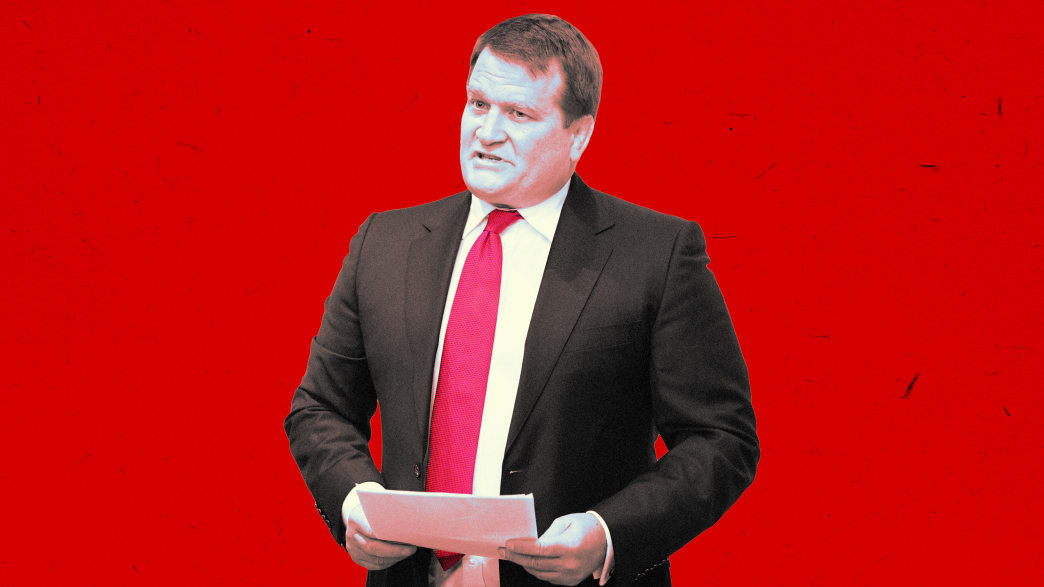
Photo Illustration by Thomas Levinson/The Daily Beast/Getty
House Republican leaders behind the sputtering impeachment inquiry into President Joe Biden scheduled a public hearing on Wednesday to iron out alleged “ inconsistencies ” in witness testimony. But they might want to start with the witness the GOP impeachment team has cited as their “most credible by far.”
Former Hunter Biden business associate Tony Bobulinski has provided testimony riddled with inconsistencies, including statements that contradict claims in the FBI’s write-up of their interview with him just ahead of the 2020 election.
In closed-door testimony last month, Democrats on the House Oversight Committee pressed Bobulinski on those statements, according to a transcript . In response, Bobulinski blamed other people for lying or getting it wrong: the FBI agents who wrote up the interview, old business associates, former White House staffer Cassidy Hutchinson, and reporters at The Wall Street Journal .
Now, House Republicans have scheduled Bobulinski to testify publicly on Wednesday. Hunter Biden and another former business partner rejected offers to appear, leaving Bobulinski as the sole in-person witness. (One other GOP witness—former Biden associate Jason Galanis—will join remotely from federal prison, where he is serving a 14-year sentence for defrauding a Native American tribe .)
This means that Bobulinski’s prior statements will be on the menu again for the Democrats. And not all of his inconsistencies can be chalked up to third-party error.
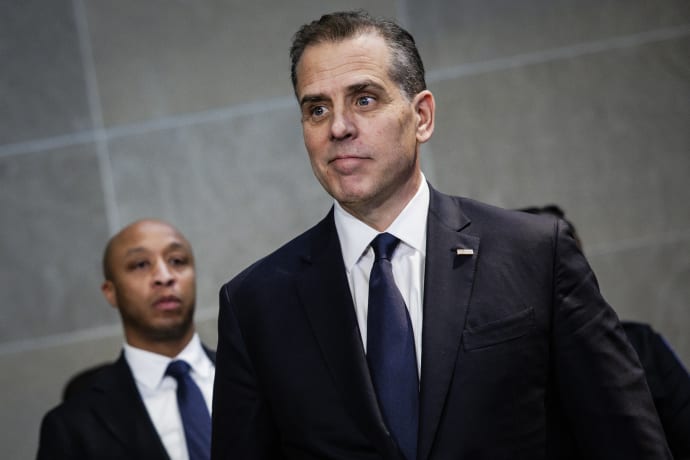
Hunter Biden, after a closed-door deposition before the House Committee on Oversight and Accountability on Feb. 28.
Samuel Corum/Getty
One central issue in the Bobulinski timeline—his long-standing connections to a sanctioned Russian oligarch behind state-controlled energy company Rosneft—appears far more close and complex than he has suggested, including in his House testimony.
Bobulinski was a partner with Hunter Biden and a small circle of other associates in a proposed 2017 investment deal involving their startup entity, called “SinoHawk,” and privately owned Chinese energy firm CEFC. In 2020, Bobulinski went public with claims that the finances involved not just Hunter Biden, but his father Joe Biden, who was out of office at the time of the negotiations.
Republicans have pointed to Bobulinski’s claims as evidence of potential wrongdoing, and his allegations have fueled unproven but widespread speculation about a bribery scandal—even though many of these claims have been debunked , and years of GOP investigations have turned up no evidence of impeachable offenses.
But as the inquiry has unspooled the details surrounding the proposal, Bobulinski’s own connections to Russia have come into clearer focus.
In 2017, while SinoHawk pursued its deal with CEFC—securing an investment of $5 million—CEFC was simultaneously chasing an exponentially bigger deal. That deal involved purchasing a $9 billion stake in Rosneft, the Russian-controlled energy conglomerate whose founder, Viktor Vekselberg, had close ties to Bobulinski, The Daily Beast previously reported.
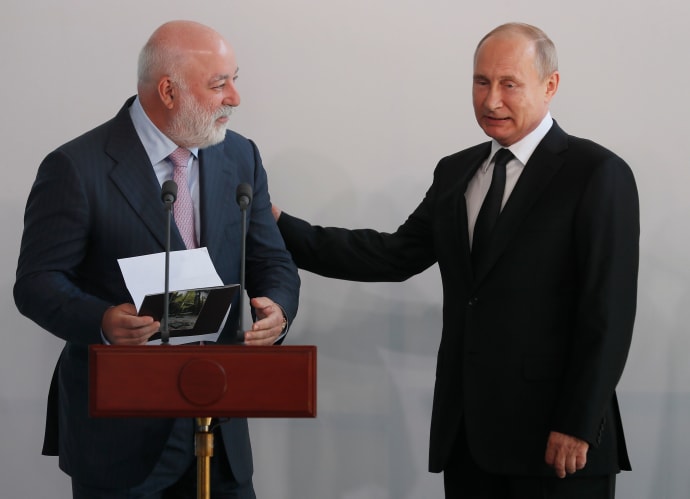
Viktor Vekselberg and Vladimir Putin in 2019.
Sergei Ilnitsky/AFP via Getty
The CEFC-Rosneft negotiations created friction between Bobulinski and Hunter Biden, the text messages show, stemming from Hunter Biden’s aversion to dealing with the sanctioned Russian company . That led to the eventual dissolution of SinoHawk, though CEFC’s investment in Rosneft never came to fruition.
Bobulinski has claimed, including in his testimony last month, that he first learned of the potential CEFC-Rosneft deal from press reports in July 2017, emphasizing that the proposal was never officially recognized until September. He also told FBI agents and House investigators that he grew deeply concerned when he learned about the deal. That specific timeline, Bobulinski told House investigators, “is important to my testimony today.”
But WhatsApp messages —compiled by a nonprofit run by outspoken Hunter Biden opponent and former Donald Trump White House staffer Garrett Ziegler, and confirmed as authentic to The Daily Beast by a representative for Bobulinski—show that Bobulinski had been in a position to know much earlier.
According to those messages, Bobulinski had been physically in Moscow for business discussions involving CEFC’s executive director one month earlier.
“Can you please get confirmation of itinerary of Director Z trip to Russia,” Bobulinski asked a CEFC associate in a May 5 message, referring to CEFC executive director Jian Jun Zang.
“The director is still on the plane, so I have not got any update on the time table in Ru,” the associate replied, adding that CEFC would procure a visa for Bobulinski’s own travel to Russia. “Regarding the Visa, CEFC will issue a letter of invitation to you, plz send me [your] passport copy, a position in a certain company (which you would like the officer to know).”
When the associate clarified that Zang would be in Russia from June 4 through June 7, Bobulinski offered to help with lodging and logistics.
“Are his accommodations and things already setup? Is there anything we can help with?” Bobulinski asked, according to the messages. (Bobulinski made a similar inquests in an earlier message, writing, “We would like to be helpful to the Director and make sure his trip is great, can you please confirm his hotel is all settled and which hotel he is staying.”)
In a separate WhatsApp exchange with Bobulinski days later, another SinoHawk partner mentions the upcoming Russia trip.
“[Z]ang wants to organize with me in Bucharest. I would like to do before Moscow or straight after,” the associate, James Gilliar, allegedly wrote, with Bobulinski allegedly replying, “Ok.” (Gilliar is also the person who sent Bobulinski a link to the public report about the CEFC-Rosneft deal, in July 2017.)
In another message from early June, Bobulinski told Gilliar, “see u in Moscow.” Then, in a separate June 4 exchange, a Romanian businessman asked Bobulinski if they could arrange a conversation “before you fly to Moscow.”
Bobulinski later stated in the messages that he was personally in Moscow in early June.
“Chairman Ye coming to moscow this trip?” Bobulinski asked a CEFC representative in a June 7 message, referencing another CEFC official.
The representative answered that Ye “might come to Moscow in several days but it’s not confirmed yet.” Bobulinski then replied that he would have stayed in Moscow longer, according to the messages.
“OK we would have stayed to spend time with him and the Director if we had known, it isn’t 100% confirmed yet though,” he wrote.

Tony Bobulinski speaks to journalists ahead of a debate between Joe Biden and Donald Trump in 2020.
Tom Brenner/Reuters
While all SinoHawk partners appear to agree that CEFC’s involvement with Rosneft tainted and ultimately killed the SinoHawk project, their interpretations of those events vary.
In his 2020 FBI interview, Bobulinski told agents that he’d first grown “concerned” about Hunter Biden’s participation in the CEFC-Sinohawk negotiations “after learning of CEFC’s involvement in Rosneft,” news that first came out on Independence Day in 2017. (A WhatsApp message shows Bobulinski receiving this information that day, from Gilliar.)
According to Bobulinski’s account, he thought it was strange that CEFC could manage a $9 billion purchase while slow-rolling its much smaller $5 million investment in Sinohawk. Group WhatsApp messages included in House impeachment releases show that Rosneft and Bobulinski’s oligarch ties gave rise to disputes between Hunter Biden and Bobulinski, The Daily Beast previously reported.
The circumstances surrounding the collapse of the deal, Bobulinski has said, are what led him to come forward in the first place. He has claimed that he first learned Hunter Biden cut him out of the CEFC deal when he read a Senate report released in late 2020, telling the FBI that in retrospect, the Rosneft involvement “didn’t add up” to him.
But WhatsApp messages show that Hunter Biden also bristled at the Rosneft deal—specifically because of Bobulinski’s business ties to Moscow and Vekselberg.
When Bobulinski first agreed to what became the SinoHawk deal—in spring 2016—he did not know he was going into business with Hunter Biden, but a “prominent American family;” impeachment records show he first became aware of Hunter Biden’s role in February 2017. And in the context of 2017, Bobulinski’s Russia connections were nuclear.
In 2014, while Joe Biden was vice president, the U.S. government sanctioned Rosneft in response to Russia’s first unlawful incursion into Ukraine. Additionally, Moscow had just interfered in the 2016 election on Trump’s behalf —with Rosneft’s role in Christopher Steele’s dossier garnering intense speculation —and Hunter Biden was wary of anything involving the Russian government. Hunter Biden aired these frustrations in text messages released by House Republicans, and WhatsApp messages between him and Bobulinski show the two men in fierce arguments months before the SinoHawk project fell apart.
On May 19, 2017, Hunter Biden and Bobulinski had a confrontation over the SinoHawk deal. WhatsApp messages show Biden invoking Bobulinski’s ties to Vekselberg, blasting him as immature and insulting, and at one point threatening to break his jaw.
“I’ll say it one final time. I don’t care how much money you’ve made what teams you were captain of or how many soulless oligarchs you call friend,” Hunter Biden wrote. “Money doesn’t interest me winning is ephemeral and fleeting and I have no interest spending my days on a super yacht measuring my dick with the people on the super yacht next to me.”
Biden continued, “I care about one thing. My family. And your demands make me uncomfortable and you’re [sic] insults remind me of the shit the captain of the lacrosse team said to me in college about my dad right before I broke his fucking jaw. So you’re [sic] choice Tony act like a child and take all your millions of marbles home and throw them at me from afar or sit down like men do and have a discussion face to face. One request though stop the 5th grade group text insults—Jesus my daughters texts are more cogent and mature.”
Bobulinski replied that he and “all the partners around the table” were “trying to protect u and your family” [sic]. Bobulinski also said that if Hunter Biden ever brought the deal up to his father, he’d likely be waved off.
“[A]nd to add to it, if you are so worried about your family, you wouldn’t be doing this because as u said, all of your dad’s lawyers and any lawyer would advise you and Jim not to touch this with a 100 foot pole,” Bobulinski wrote, referencing Hunter Biden’s uncle, James Biden, who was also involved in SinoHawk.
The deal, of course, fell through. Instead, a separate entity that Hunter Biden co-founded with Chinese investors received $5 million from a CEFC affiliate in August 2017. That company paid Hunter Biden $500,000 up-front, followed by monthly consulting fees of $100,000—payments that the GOP has cast in misleading terms .
Last week, CNN reported that the impeachment inquiry has stalled amid a series of embarrassing and escalating setbacks. While the most damaging blow came in the form of the indictment of an FBI informant last month for lying to his handlers, CNN also reported that Biden’s recent closed-door testimony also impressed Republicans, leaving Oversight chair Rep. Jamie Comer (R-KY) Comer “on his own island.”
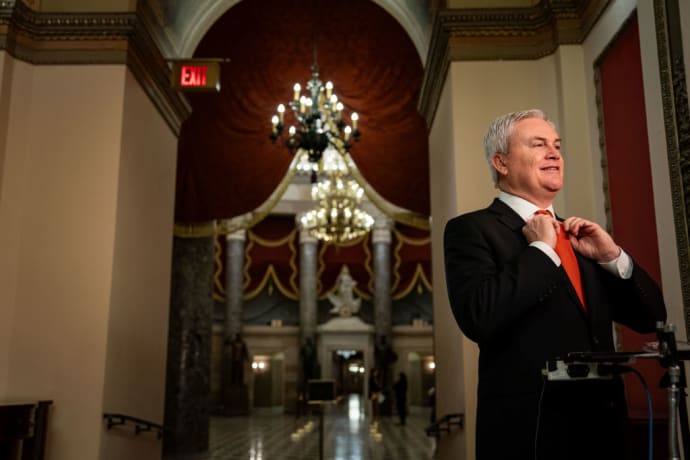
Rep. James Comer, chairman of the House Oversight and Accountability Committee
Kent Nishimura/Getty
No further witness interviews have been scheduled, and Republicans, who control the House, don’t have enough votes to impeach Joe Biden, CNN reported. There’s no partisan consensus on an exit strategy, either, and while Comer has advocated for criminal referrals, House Judiciary Chair Jim Jordan and House Speaker Mike Johnson are less enthusiastic, according to CNN.
Bobulinski didn’t return The Daily Beast’s comment request, and Hunter Biden’s legal team declined to comment. In response to questions, an Oversight Committee spokesperson provided a statement challenging Hunter Biden to appear for a public hearing.
“Tony Bobulinski is willing to appear before the Oversight Committee in public to answer questions about his previous testimony and anything else members want to ask him,” the statement said. “If Hunter Biden was so confident in his previous testimony, he’d do the same. But it appears Hunter Biden is afraid to testify alongside his former business associates.”
Hunter Biden shot down the GOP’s invitation to join Bobulinski at Wednesday’s upcoming hearing, with his attorney Abbe Lowell dismissing the proceedings as a “ carnival side show .” Another former business partner, Devon Archer—a key witness for the GOP whose previous testimony undercut their central allegations —also rejected the invitation to testify this week, citing a “patently unreasonable” request.
In last month’s closed-door interview, House Democrats peppered Bobulinski with questions seeking to highlight and dismantle his shifting narratives. Their inquiries zeroed in on several factual discrepancies, chiefly concerning the details surrounding Bobulinski’s presence at a 2017 business meeting in Miami, as noted in the FBI interview. Bobulinski’s written testimony admits that he did not attend the meeting, blaming the half-dozen FBI agents in the interview for a “single note-taking error.”
But as Democrats pressed Bobulinski, that “single note-taking error” morphed into a broader claim, about “numerous statements in [the FBI notes] that are incorrect.” The testimony transcript illustrates a series of contentious exchanges, with Democrats expressing open skepticism that the inconsistencies were merely the fault of FBI agents taking bad notes, and reprimanding Bobulinski for what Democrats said was a combative and “disrespectful” tone.
Those disputed claims include the FBI’s notes that Bobulinski told them he had personally witnessed a Chinese business official giving Hunter Biden a diamond at a Miami meeting in 2017—a note that Bobulinski called “a lie.” The inconsistencies also include the timeline of when Bobulinski first learned of the Chinese company involved with the business deals, with Bobulinksi telling Democrats that the FBI’s notes about that timeline were also “incorrect.”
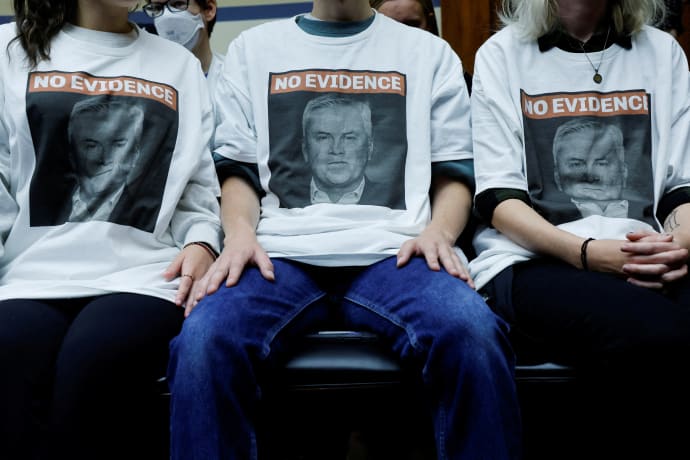
Attendees of a House Oversight and Accountability Committee hearing last fall made their views clear.
Jonathan Ernst/Reuters
A third point of contention was whether Bobulinski had visited the White House the day before his FBI interview. (The write-up notes that Bobulinski was tested for COVID specifically because of a White House visit the prior day.) In response, Bobulinski—flanked by Donald Trump’s 2020 campaign lawyer Stefan Passantino—told Rep. Dan Goldman (D-NY) that the COVID test was for an event in Nashville, Tennessee, adding that he has “never” visited the White House and slamming the detail as a “big, clear mistake” by the multiple FBI agents who had documented the meeting.
The claims of numerous factual errors on the FBI’s part beggared belief among Bobulinski’s Democratic interrogators. The accuracy is paramount, because Bobulinski’s FBI interview has for years been held up by Hunter Biden’s critics as official documentation for the bombshell claim that Hunter Biden had arranged for a 10 percent cut for “the big guy,” Joe Biden—an allegation that has since been discredited . (Bobulinski sat for that 2020 FBI interview voluntarily, but refused to provide his electronic devices for imaging.)
After Bobulinski implicated Joe Biden directly in the deal, Gilliar—a SinoHawk partner— told The Wall Street Journal , “I would like to clear up any speculation that former Vice President Biden was involved with the 2017 discussions about our potential business structure. I am unaware of any involvement at any time of the former vice president. The activity in question never delivered any project revenue.”
Separately in the hearing, Bobulinski also attacked Cassidy Hutchinson’s claims about him in her recent memoir. Hutchinson wrote that she saw Bobulinski meet with former Trump chief of staff Mark Meadows while wearing a ski mask at an October 2020 campaign event, where Meadows gave Bobulinski an envelope of some kind. Bobulinski, however, called her a “fraud and a liar,” denied being handed anything, and denied wearing a ski mask.
In response, Hutchinson released what she said was a photo from the event showing Meadows next to Bobulinski in a black ski mask. Days later, Bobulinski sued Hutchinson for defamation.
When the testimony was over, House Oversight minority leader Rep. Jamie Raskin (D-MD) released a statement characterizing the hearing as “farcical” and rebutting many of Bobulinski’s claims and explanations. In November, Hunter Biden’s legal team filed a criminal referral asking the Justice Department to investigate Bobulinski for potentially lying to federal agents in his 2020 interview.
Republicans, however, defended their witness. In interviews after the hearing, Comer threw his lot in with Bobulinski.
“Tony Bobulinski’s the one credible guy in the Biden orbit,” Comer told Newsmax in one interview . “I will admit with Jamie Raskin that there are a lot of people involved with the Bidens that weren’t credible. That’s a reflection on the Bidens, not me. Tony Bobulinski’s the one good guy, the one honest guy, the one credible guy, and he did a great job in the transcribed interview yesterday.”
Got a tip? Send it to The Daily Beast here .
READ THIS LIST
- Election 2024
- Entertainment
- Newsletters
- Photography
- AP Buyline Personal Finance
- Press Releases
- Israel-Hamas War
- Russia-Ukraine War
- Global elections
- Asia Pacific
- Latin America
- Middle East
- March Madness
- AP Top 25 Poll
- Movie reviews
- Book reviews
- Personal finance
- Financial Markets
- Business Highlights
- Financial wellness
- Artificial Intelligence
- Social Media
Tearful Russian billionaire who spent $2 billion on art tells jurors Sotheby’s cheated him
FILE - President of the football club AS Monaco, Dmitry Rybolovlev, attends a French league two soccer match between Monaco and Caen at the Louis II stadium on May 4, 2013, in Monaco. Rybolovlev who accused Sotheby’s of teaming up with a Swiss art dealer to cheat him of tens of millions of dollars became tearful in court Friday, Jan. 12, 2024 as he testified that he considered the dealer to be like family before discovering he’d been defrauded by an “art market that needs to be more transparent.” (AP Photo/Lionel Cironneau, File)
- Copy Link copied
NEW YORK (AP) — A Russian billionaire who accused Sotheby’s of teaming up with a Swiss art dealer to cheat him out of tens of millions of dollars became tearful Friday while testifying about discovering he’d been part of a con game too common in an “art market that needs to be more transparent.”
The emotional moment came as fertilizer magnate Dmitry Rybolovlev, speaking through an interpreter, completed two days of testimony in Manhattan federal court to support his lawsuit against Sotheby’s.
Once worth at least $7 billion, Rybolovlev said he trusted his dealer, Yves Bouvier.
“So when you trust people, and I’m not a person who trusts easily, but when a person is like a member of your family,” Rybolovlev said as he dropped his head briefly before wiping tears from his eyes and continuing on: “There is a point in time and that you start to completely and utterly trust a person.”
Rybolovlev is trying to hold Sotheby’s responsible for what his lawyers said was the loss of over $160 million. His legal team said Bouvier pocketed the sum by buying famous artworks from Sotheby’s before selling them to Rybolovlev at marked up prices. In all, Rybolovlev spent about $2 billion on art from 2002 to 2014 as he built a world-class art collection.
On cross examination, a Sotheby’s lawyer got Rybolovlev to admit that he trusted his advisers and didn’t insist on seeing documents that might have shown exactly where his money was going, even when he bought art sometimes worth tens of millions of dollars.
In his testimony, Rybolovlev blamed murky practices in the blue-chip art world for leaving him damaged financially.
“Because when the largest company in this industry with such a profound reputation does these actions, it makes it incredibly difficult for clients like me that have experience in business to know what’s going on,” he said, supporting his lawyers’ arguments that Sotheby’s either knew — or should have known that Rybolovlev was getting cheated and notified him.
When asked by his lawyer why he sued Sotheby’s, Rybolovlev said: “So it’s not an issue of money. Well, not only of money. It’s important for the art market to be more transparent. Because ... when the largest company in this industry is involved in actions of this sort, you know, clients don’t stand a chance.”
In an opening statement earlier in the week, Sotheby’s attorney Sara Shudofsky said Rybolovlev was “trying to make an innocent party pay for what somebody else did to him.”
Rybolovlev’s lawyer, Daniel Kornstein, said in his opening that Sotheby’s joined an elaborate fraud.
“Sotheby’s had choices, but they chose greed,” he said.
Rybolovlev claims he was purposefully deceived by Bouvier and a London-based executive at Sotheby’s as he bought 38 art pieces.
Only four are at issue in the trial, including Leonardo da Vinci’s “Salvator Mundi, ” Latin for “Savior of the World,” which Rybolovlev’s lawyers say Bouvier bought from Sotheby’s for $83 million, only to resell to Rybolovlev a day later for over $127 million. In 2017, Rybolovlev sold it through Christie’s for a historic $450 million as it became the most expensive painting ever sold at auction.
In December, Bouvier’s lawyers announced that Bouvier had settled with Rybolovlev under undisclosed terms that ensure neither will comment on their past disputes.
Bouvier’s Swiss lawyers, David Bitton and Yves Klein, said earlier this week that Bouvier “strongly objects to any allegation of fraud.”
They said the allegations against Bouvier in New York have been rejected “by authorities around the world,” with all nine legal cases brought against him in Singapore, Hong Kong, New York, Monaco and Geneva, Switzerland, being discontinued.
In 2018, Rybolovlev was included on a list that the Trump administration released of 114 Russian politicians and oligarchs it said were linked to Russian President Vladimir Putin.
However, he was not included on a list of Russian oligarchs sanctioned after Russia attacked Ukraine, and Kornstein told jurors that his client, who studied medicine and became a cardiologist before switching to business, hasn’t lived in Russia in 30 years.

IMAGES
VIDEO
COMMENTS
France seized Amore Vero, a 281-foot megayacht linked to oligarch and politician Igor Sechin, on March 3. The yacht, Amore Vero, is estimated to have a value of $120 million. It has a swimming ...
Ortega sold Drizzle in 2024 to a Russian millionaire, who named the yacht VASSA. Unfolding the Value of the VASSA Yacht. VASSA is estimated to be worth $80 million, with annual running costs approximated around $8 million. The price of a yacht can fluctuate significantly, factoring in various elements such as the yacht's size, age, degree of ...
The lawyer argued there was no evidence the yacht represented the proceeds of crime, and claimed it actually belonged to a different billionaire Russian oligarch. Eduard Khuadainatov is the former ...
June 27, 2022 / 3:40 PM EDT / CBS/AP. A $325 million superyacht seized by the United States from a sanctioned Russian oligarch arrived in San Diego Bay on Monday. The 348-foot-long (106-meter-long ...
U.S. moves to claim $300M superyacht associated with 'Russian Gatsby'. The Justice Department filed a civil forfeiture complaint for billionaire oligarch Suleiman Kerimov's 348-foot yacht ...
Designed by Philippe Starck, the "A" has quickly become the most loved and loathed ship on the sea. WSJ's Robert Frank takes an exclusive tour of Andrey Meln...
A $300 million yacht allegedly owned by sanctioned Russian billionaire Suleiman Kerimov has been seized by Fijian authorities at the request of the U.S., the Justice Department announced Thursday ...
The $90 million 255-foot yacht, named Tango, is owned by sanctioned Russian oligarch Viktor Vekselberg, who heads the Renova Group, a Russian conglomerate with interests in metallurgy, machinery ...
The SY A yacht, owned by Russian billionaire Andrey Melnichenko, refuels by a tanker in Mugla, Turkey, on Nov. 18, 2017. Sabri Kesen / Anadolu Agency via Getty Images file.
The Italian financial police seized Russian billionaire Gennady Timchenko's yacht, named "Lena," in the port of San Remo, according to a police statement. Timchenko is the owner of private ...
A Russian billionaire's 18-cabin superyacht has gone to auction The yacht can accommodate 12 guests in six cabins, as well as a 20-person crew. An infinity pool, full-service spa, luxury cinema ...
World's largest yacht, linked to Russian billionaire, seized by Germany By Bryan Pietsch Updated April 14, 2022 at 10:02 a.m. EDT | Published April 14, 2022 at 4:21 a.m. EDT
The Dilbar, a luxury yacht owned by the Russian billionaire Alisher Usmanov, sails in the Bosphorus in Turkey. Photograph: Yoruk Isik/Reuters. Their efforts will complement those of a ...
Hong Kong CNN —. A megayacht linked to a sanctioned Russian oligarch has dropped anchor in Hong Kong, amid efforts by the West to seize the luxury assets of Russian elites in allied ports as the ...
Reuters. The US has filed a civil forfeiture case against a $300 million superyacht it alleges is owned by a Russian oligarch. The 348-foot luxury ship Amadea was bought by billionaire Suleiman ...
Russian oligarch Andrey Melnichenko's yacht was seized Friday, Italian authorities said. Sailing Yacht A is the world's largest sailing yacht at around 469 feet long and has eight decks.
In this photo, Super yacht Dilbar, owned by Russian billionaire Alisher Usmanov, anchors in Weymouth bay on June 08, 2020 in Weymouth, United Kingdom. The yacht is now blocked in the port of ...
Part of a Hawaii themed cruise ship is seen near the Russian-owned super yacht Amadea, which was seized in Fiji by American law enforcement, while it is docked in Honolulu, Hawaii, U.S. June 17, 2022.
The yacht is among the assets linked to Viktor Vekselberg, a billionaire and close ally of Russian President Vladimir Putin who heads the Moscow-based Renova Group, a conglomerate encompassing ...
The Nord yacht is a 465ft motor yacht built by Lurssen. Designed by Nuvolari Lenard, its interior is a masterpiece of luxury and style. The owner of the yacht Nord is Russian billionaire Alexei Mordashov. With a top speed of 20 knots and a range of features including a helicopter hangar, swimming pool, and cinema, it offers an unparalleled ...
Eclipse is currently moored in the Turkish port of Bodrum, with three more of Abramovich's yachts—the 458-foot, $475 million Solaris, the 180-foot, $38 million Halo and the 220-foot, $20 ...
On Sept. 3, 2020, the staff of a $90 million yacht placed an order with a U.S. company for a set of luxury bathrobes that came to $2,624.35. For roughly two years before that, according to federal ...
St. Augustine is home to a Russian billionaire's $7 million yacht.. Igor Makarov's 128-foot yacht, called Areti I, has been in St. Augustine at Camachee Cove for years, a spokesman for his firm ...
The US government is offering a reward of up to $1 million for a businessman who allegedly helped a Russian oligarch's yacht circumvent sanctions - until the scheme was revealed by an order ...
Humphreys developed the world's first openly acknowledged spoofer as a Ph.D. student at Cornell University in 2008, and he later used the device to throw an $80 million private yacht off course ...
In November, he claimed that cronies of Mr. Zelensky bought two yachts — Lucky Me and My Legacy — for $75 million. His evidence, like Mohamed al-Alawi's, includes photographs of the vessels ...
Aerial shots of the yacht seem to show a pool on its main deck and a helipad. ... originally built for a sanctioned Russian businessman, at a $300 million price tag. (While that's a seemingly huge ...
The CEFC-Rosneft negotiations created friction between Bobulinski and Hunter Biden, the text messages show, stemming from Hunter Biden's aversion to dealing with the sanctioned Russian company ...
A Russian billionaire blames Sotheby's for losing millions on art by Picasso and da Vinci . On cross examination, a Sotheby's lawyer got Rybolovlev to admit that he trusted his advisers and didn't insist on seeing documents that might have shown exactly where his money was going, even when he bought art sometimes worth tens of millions of ...